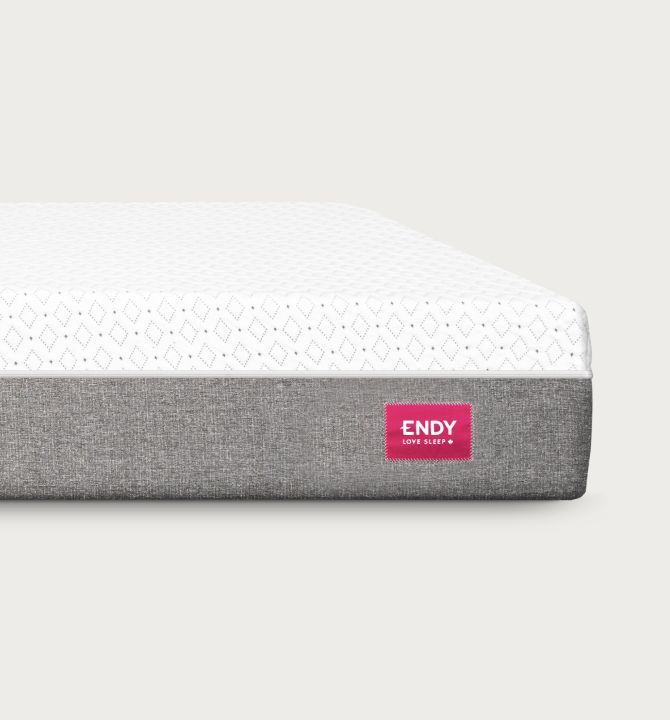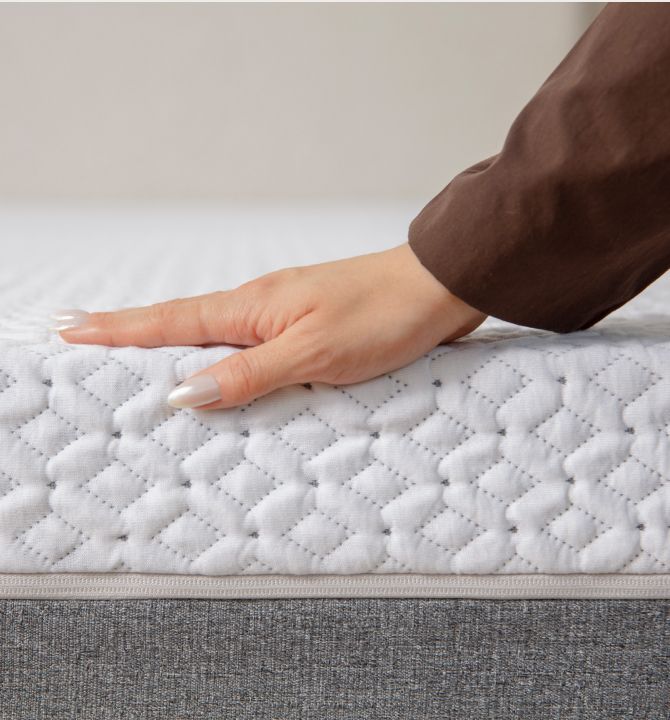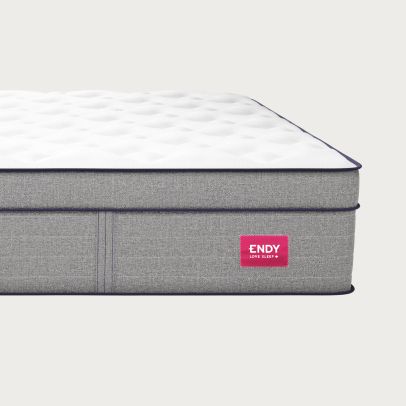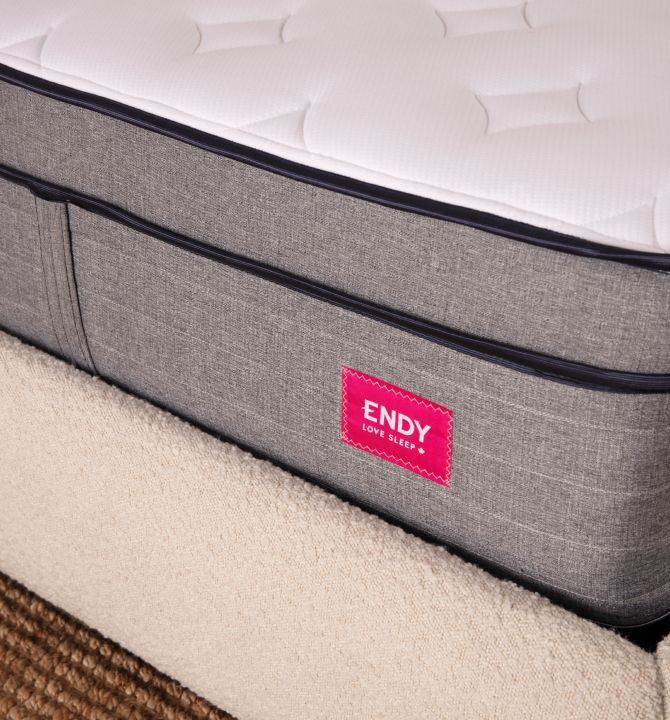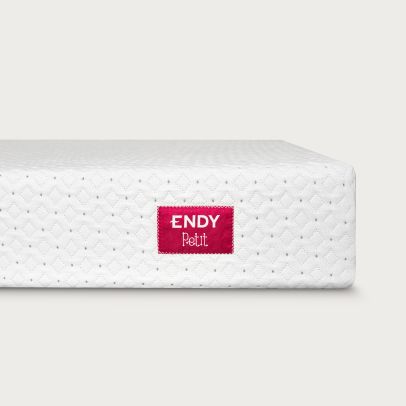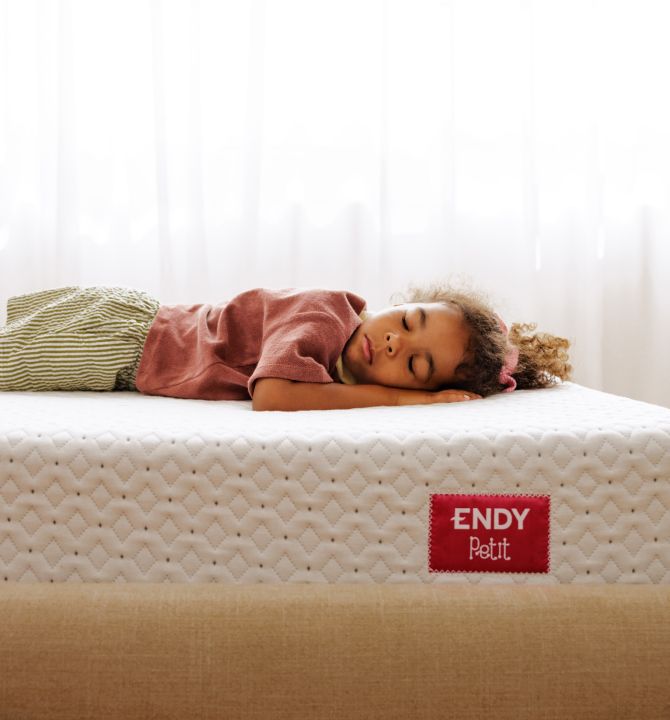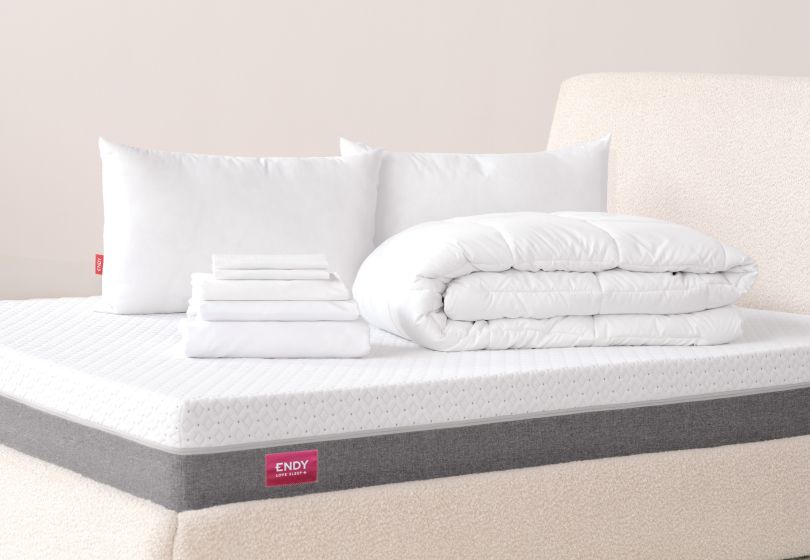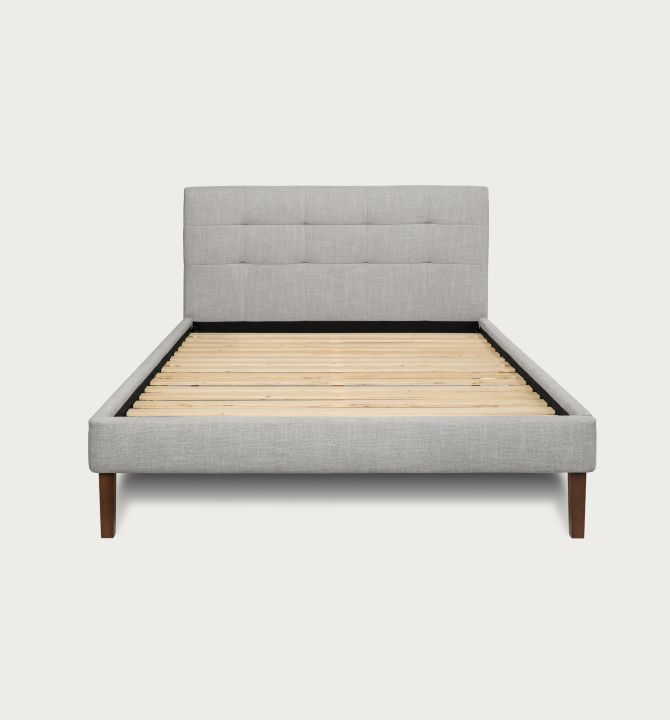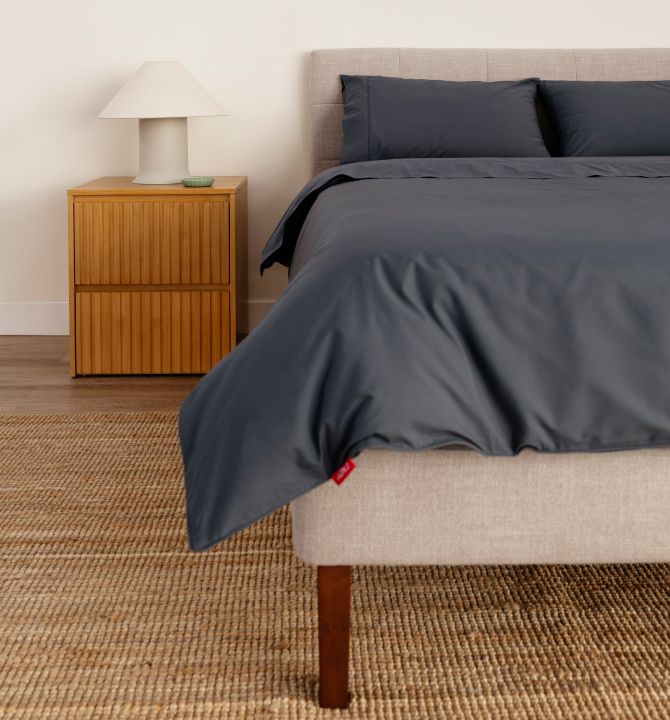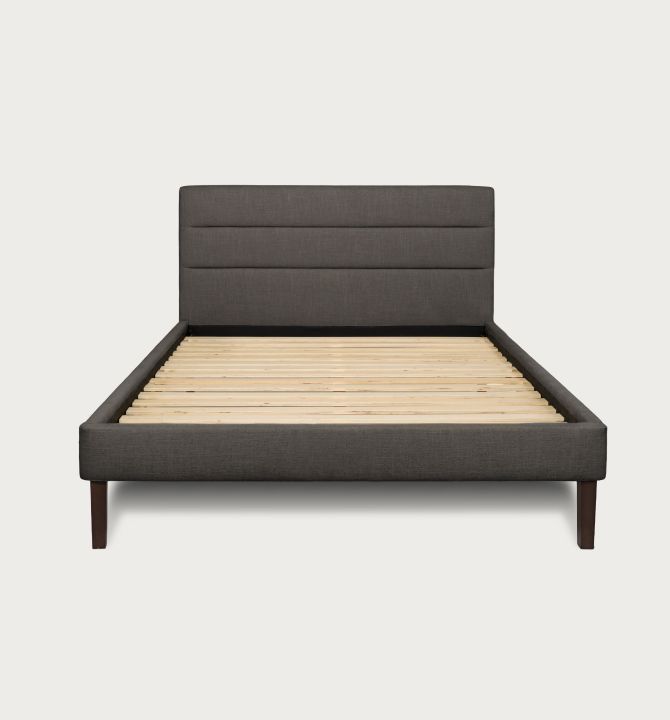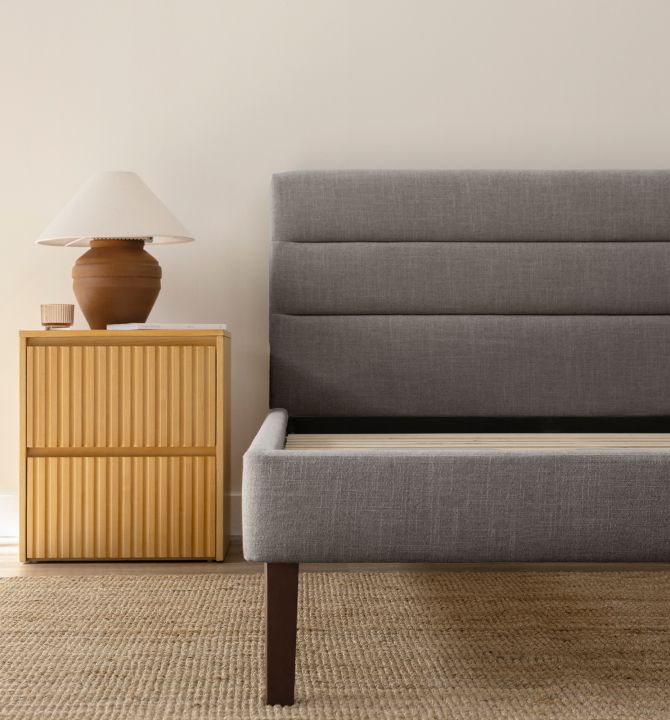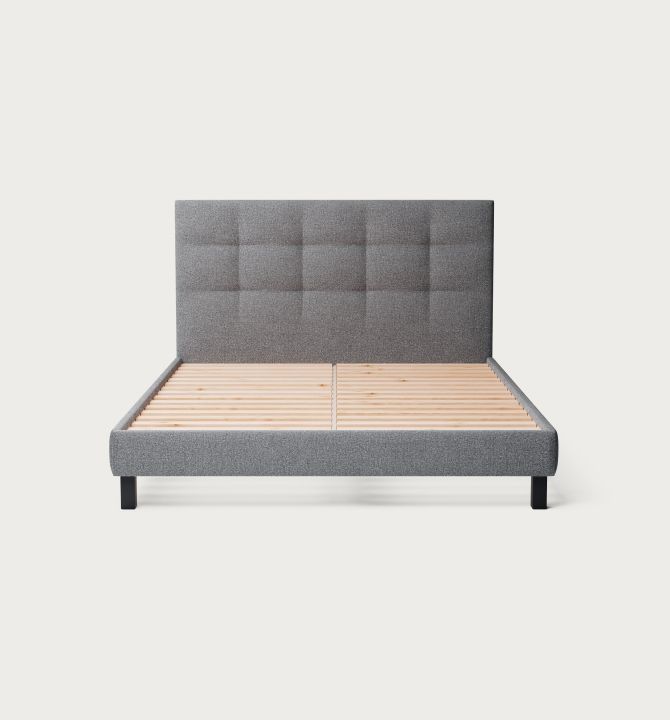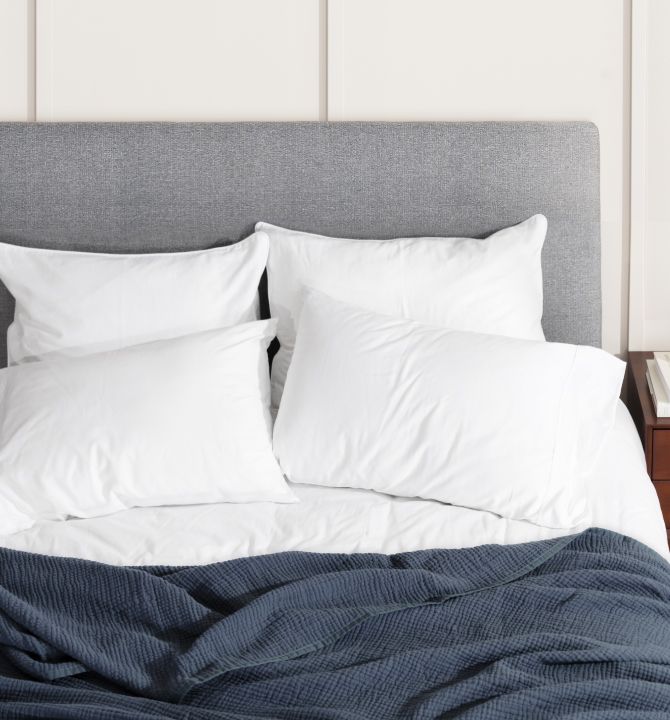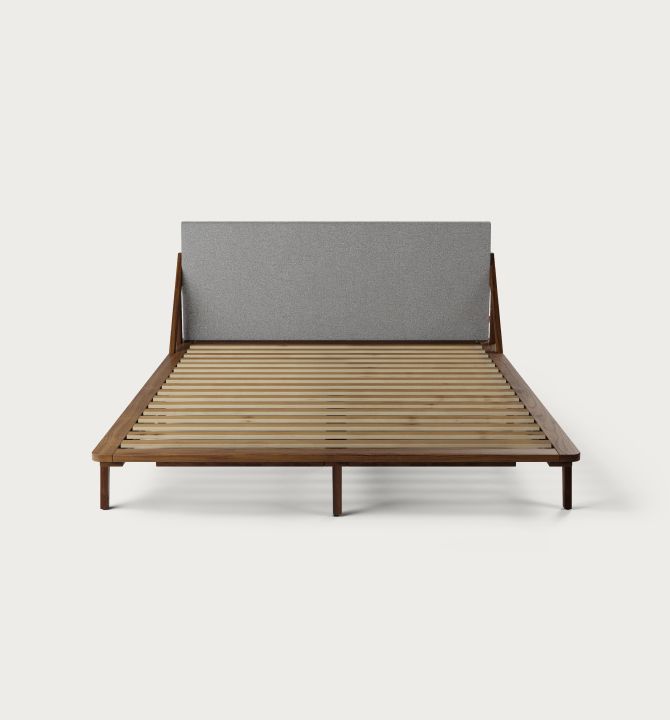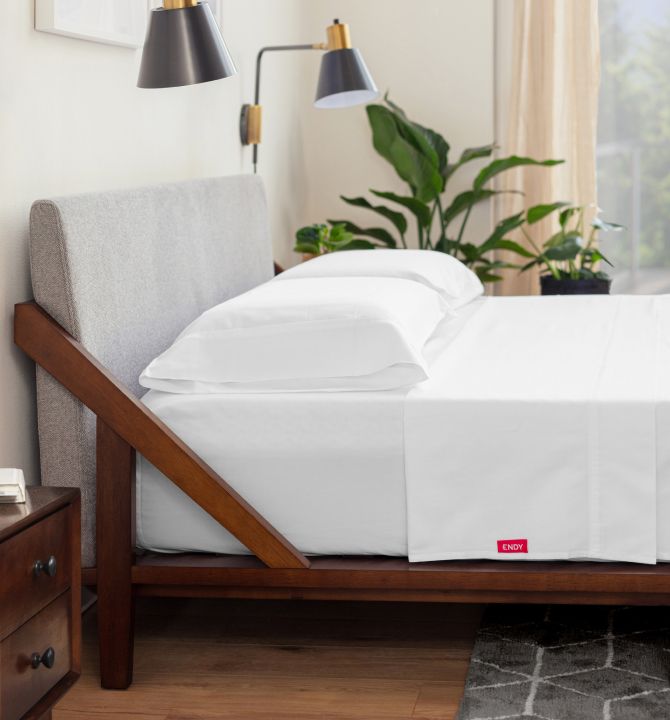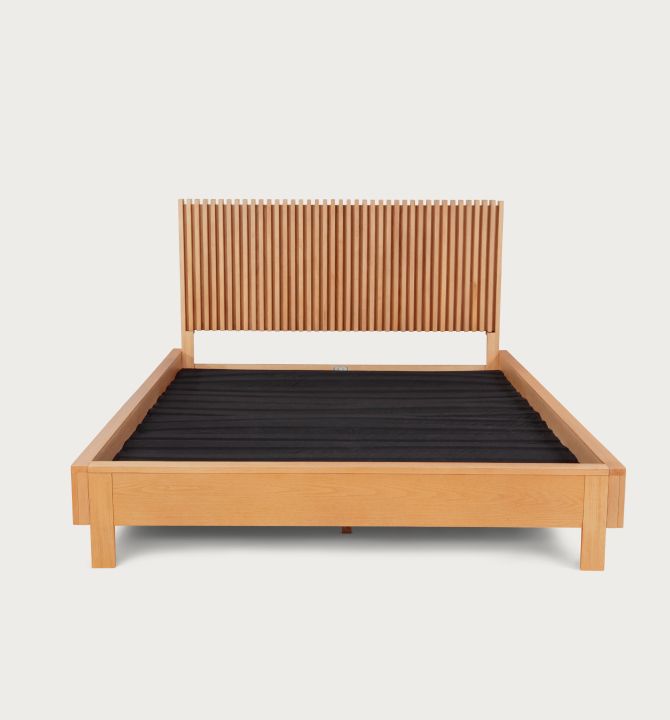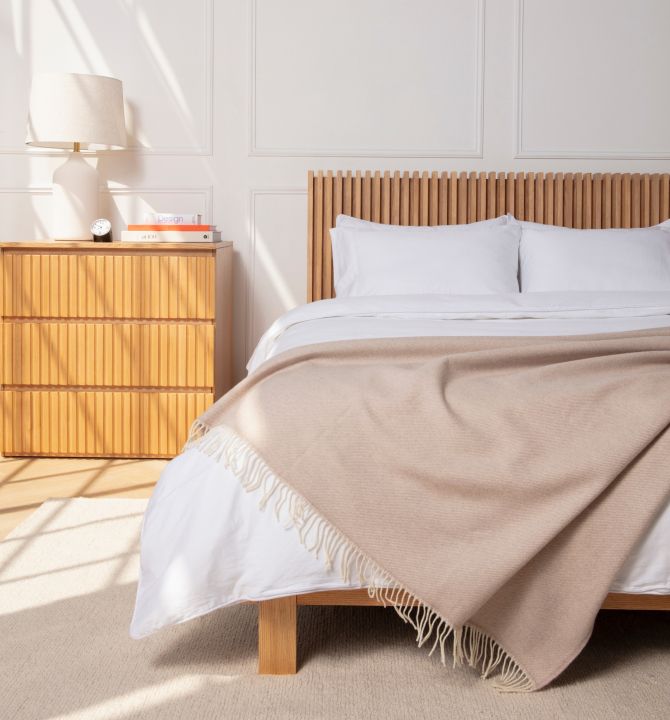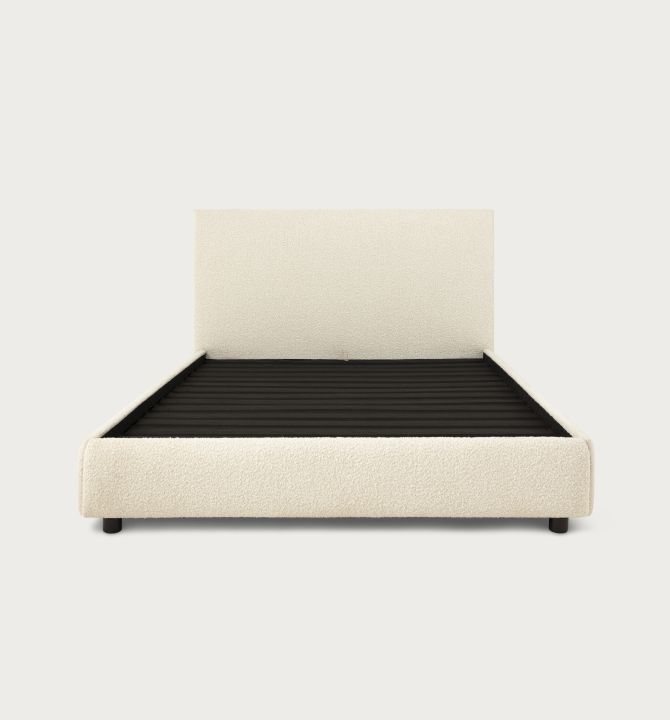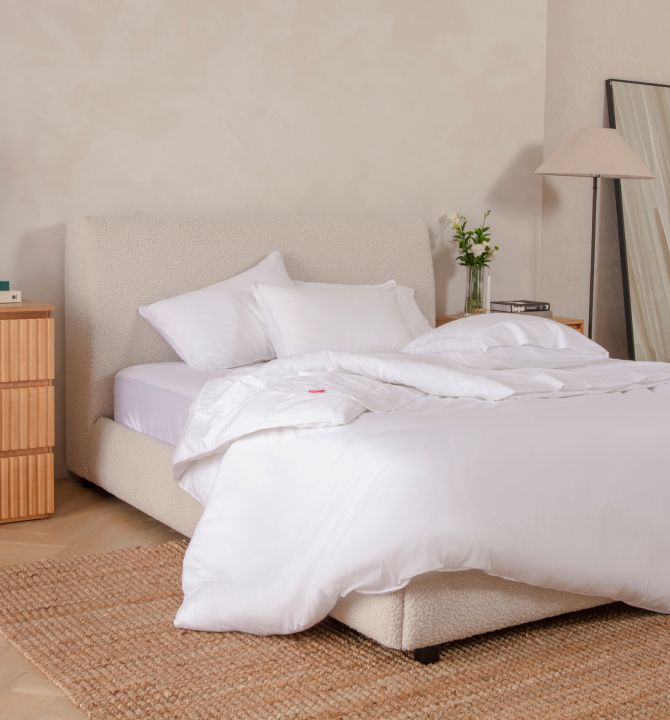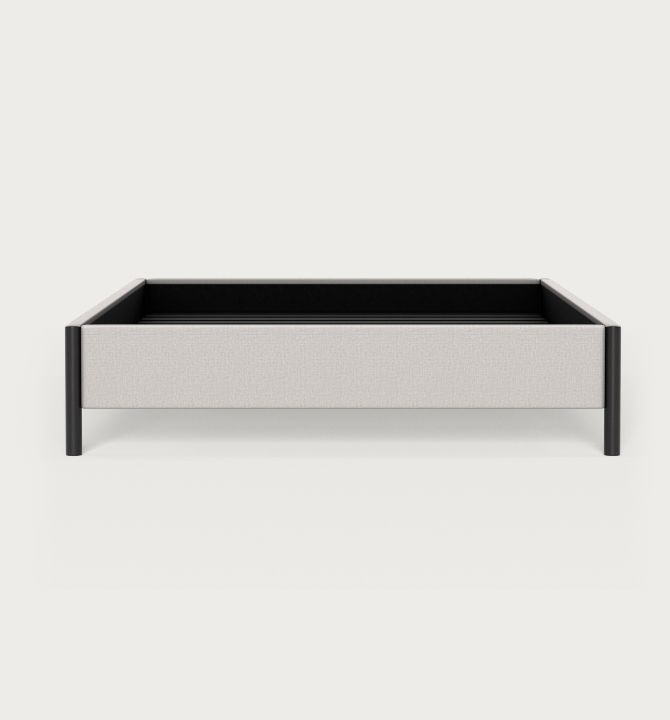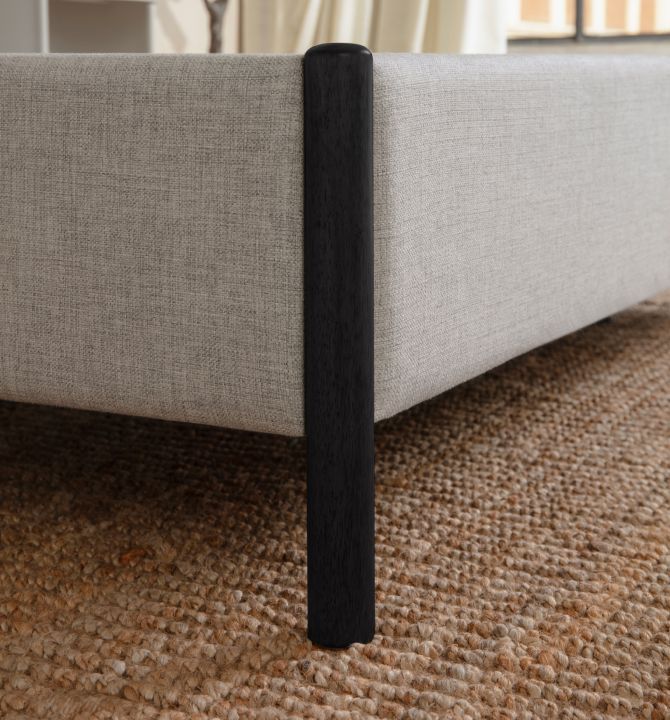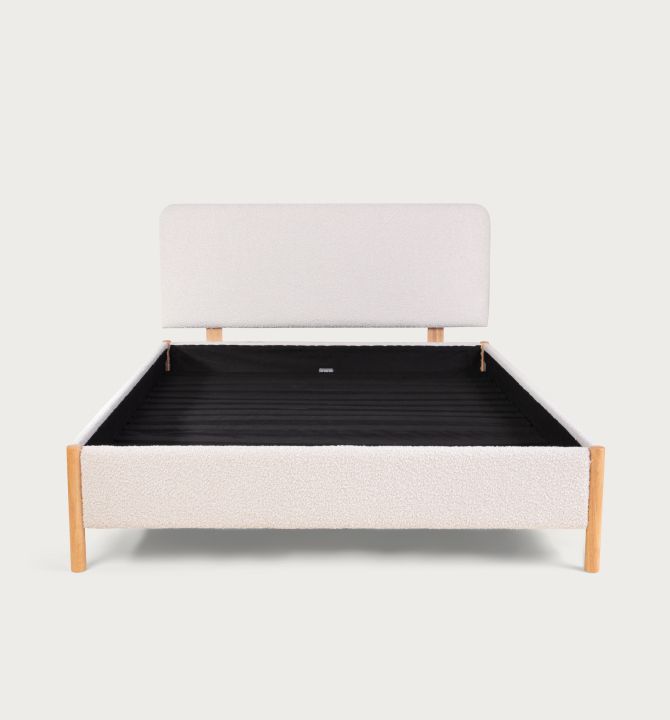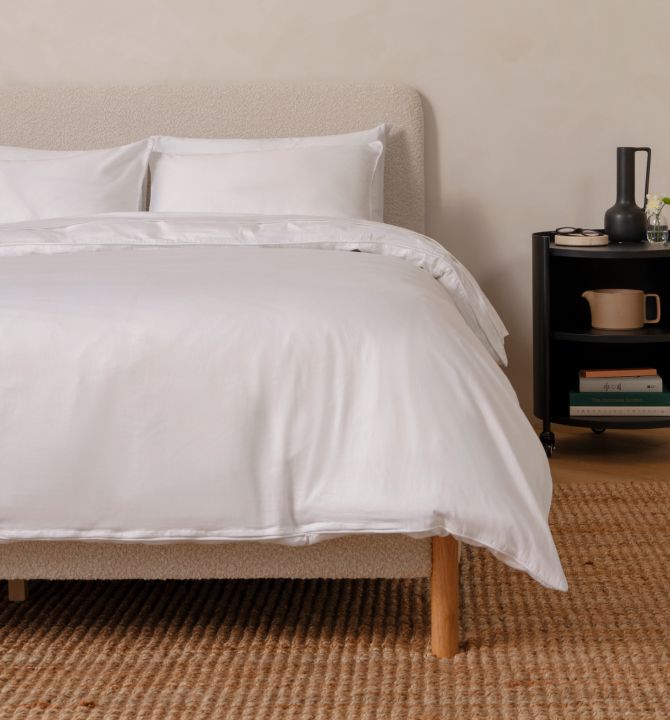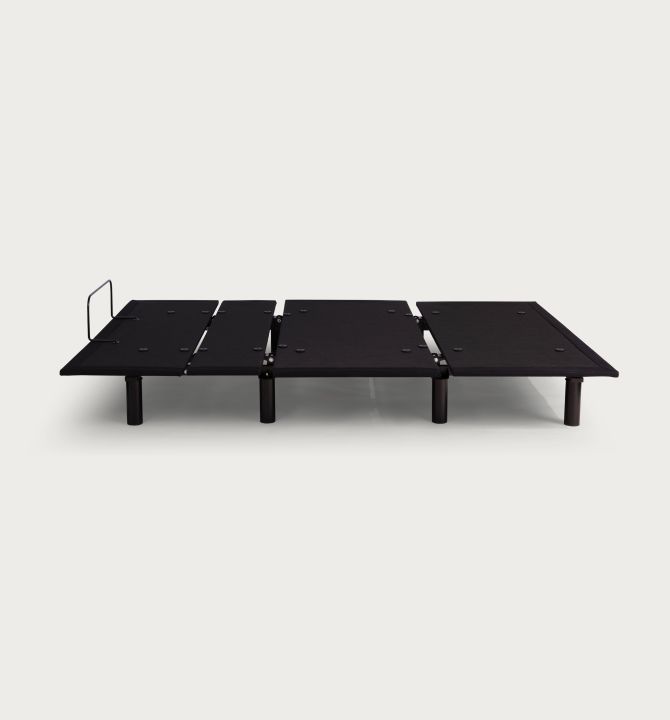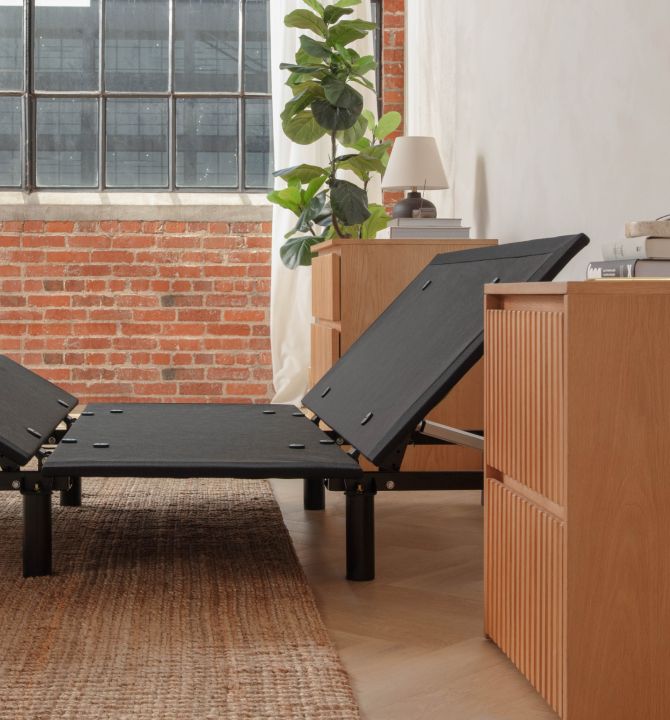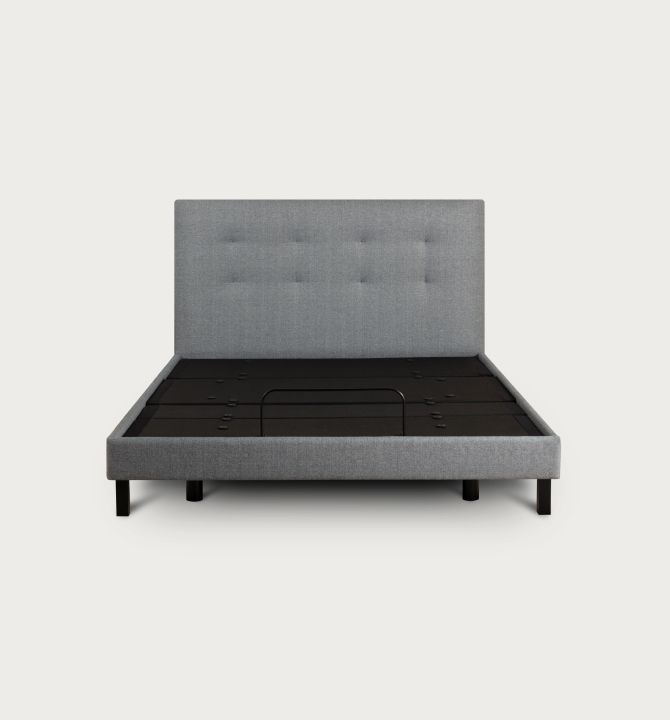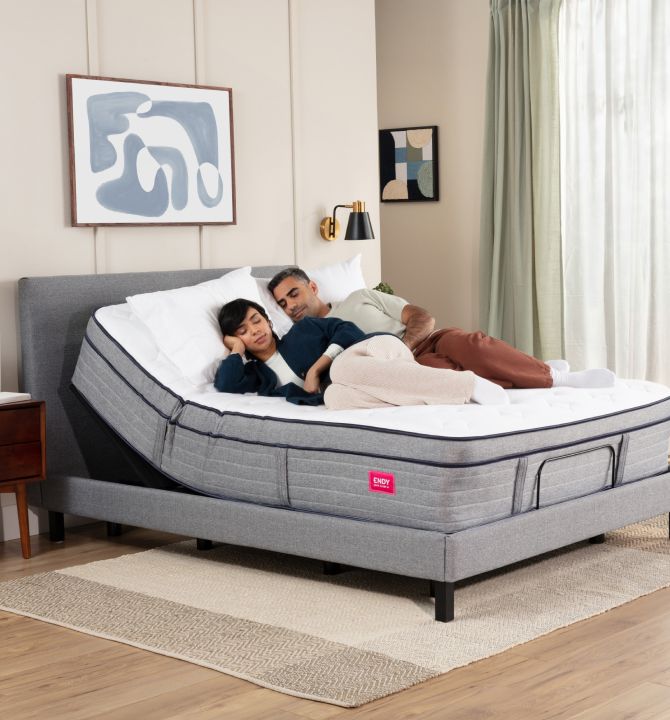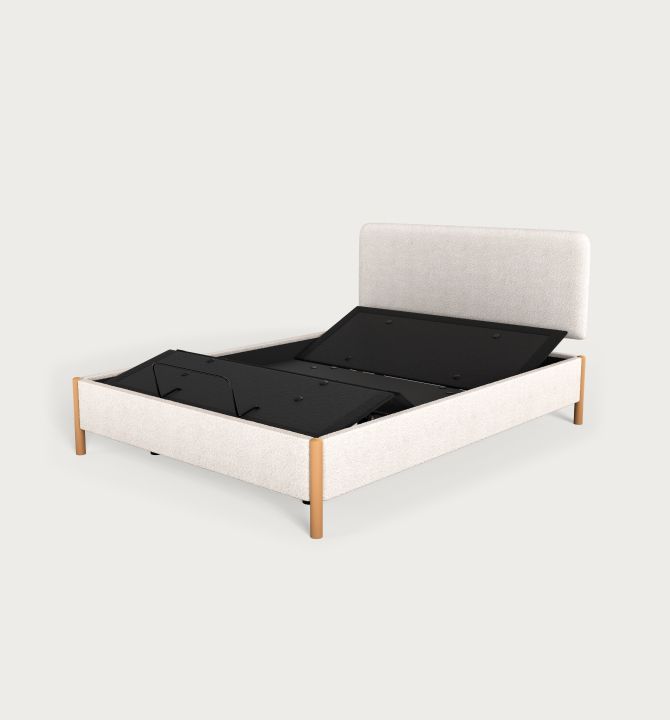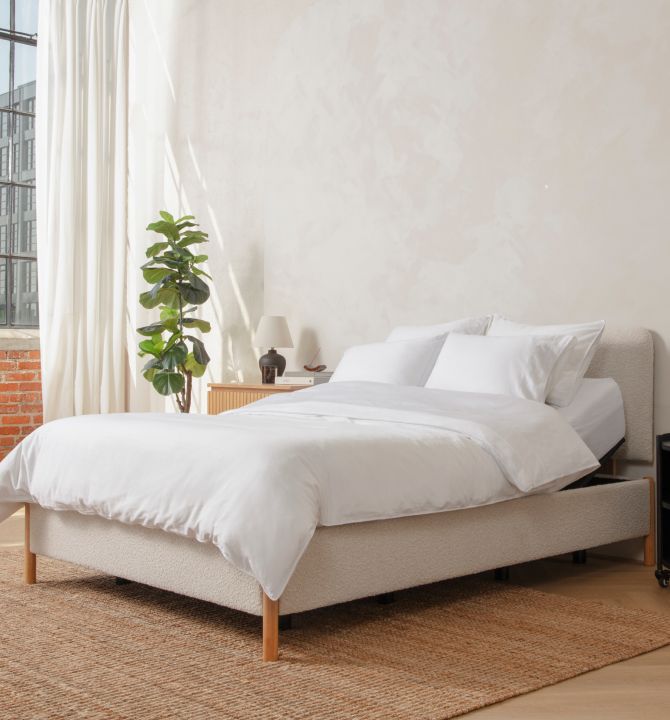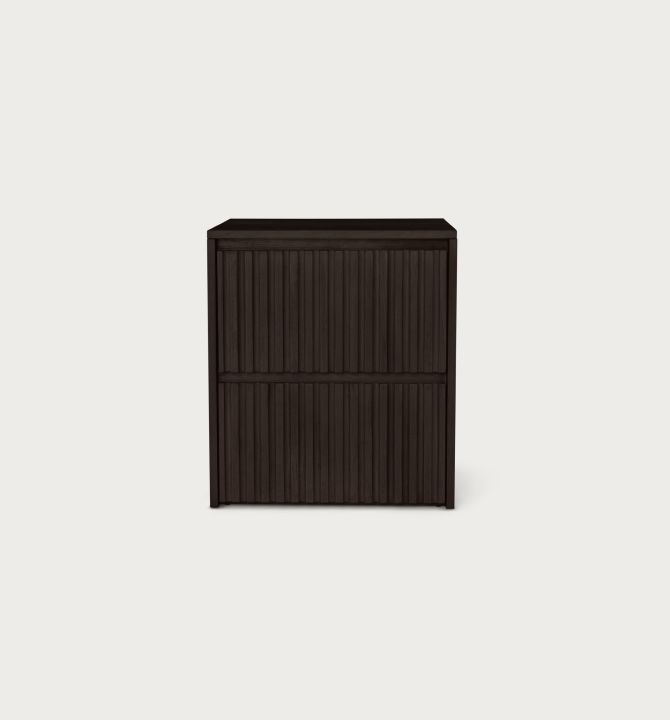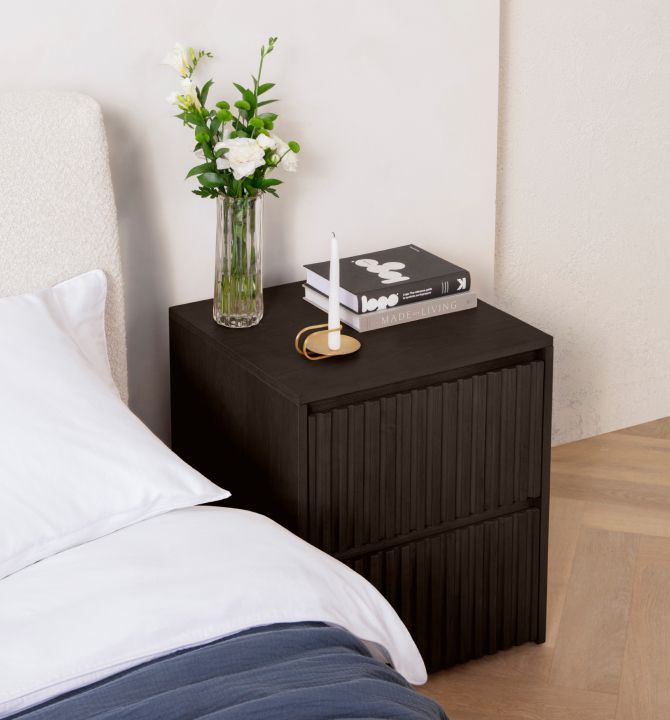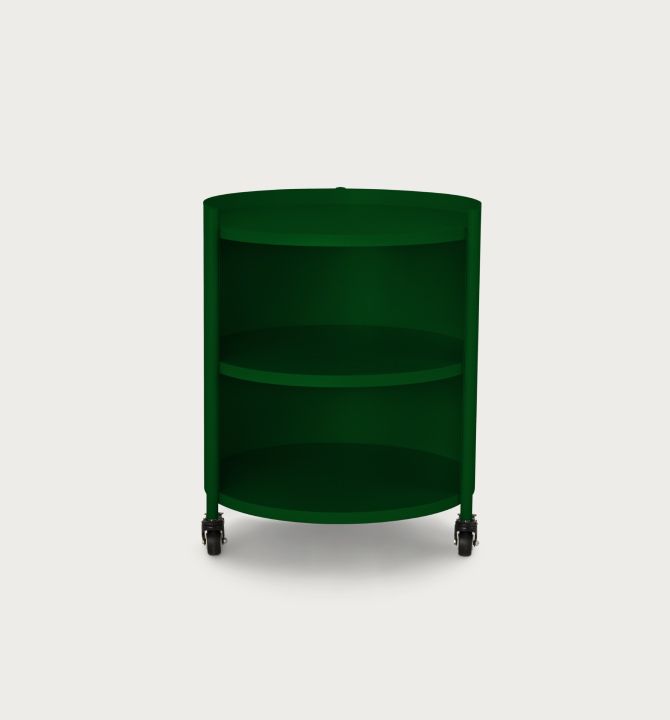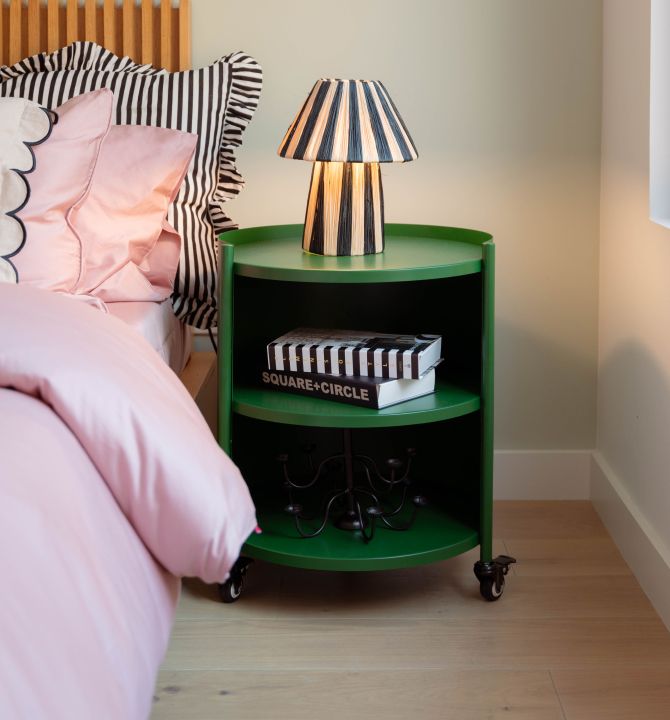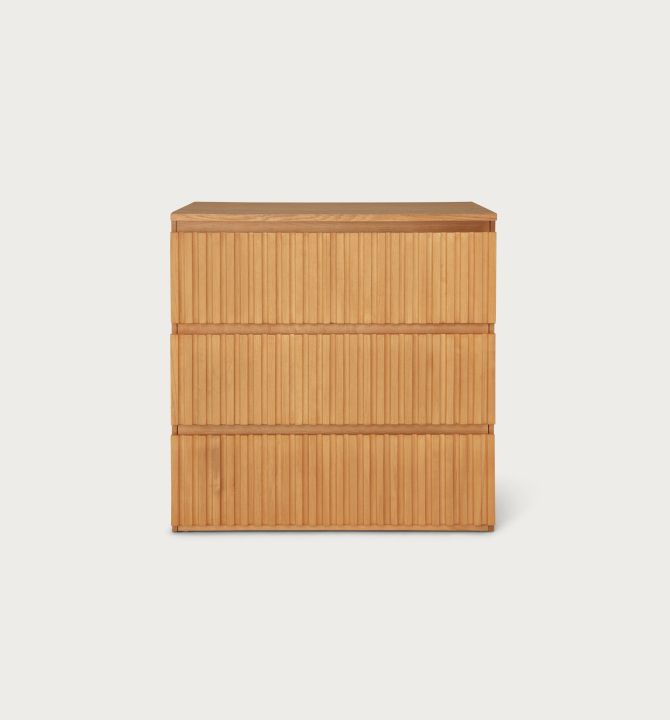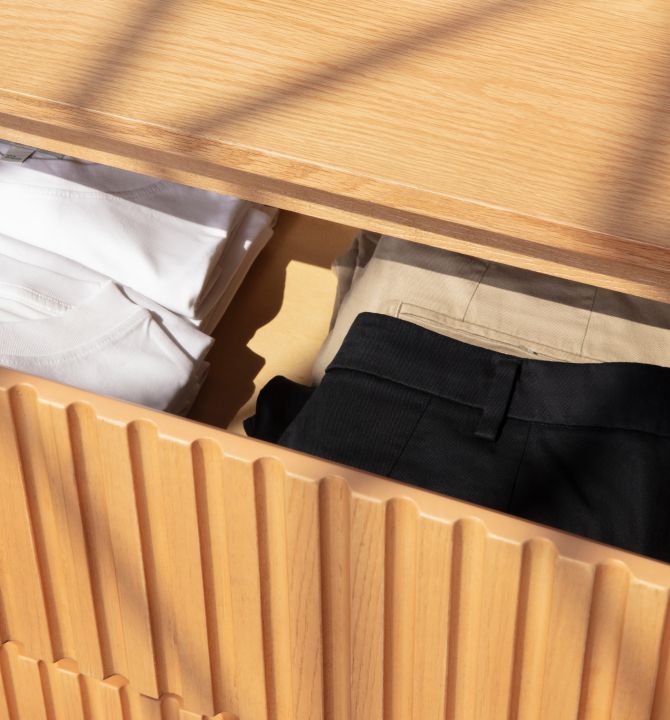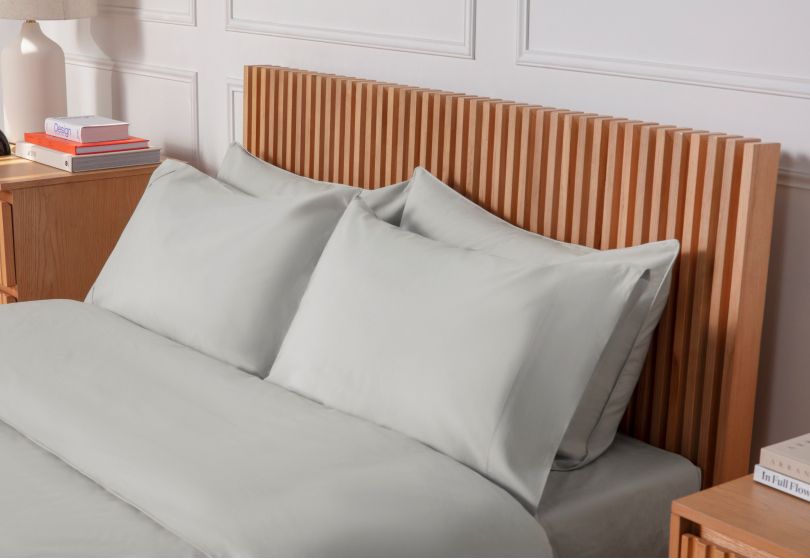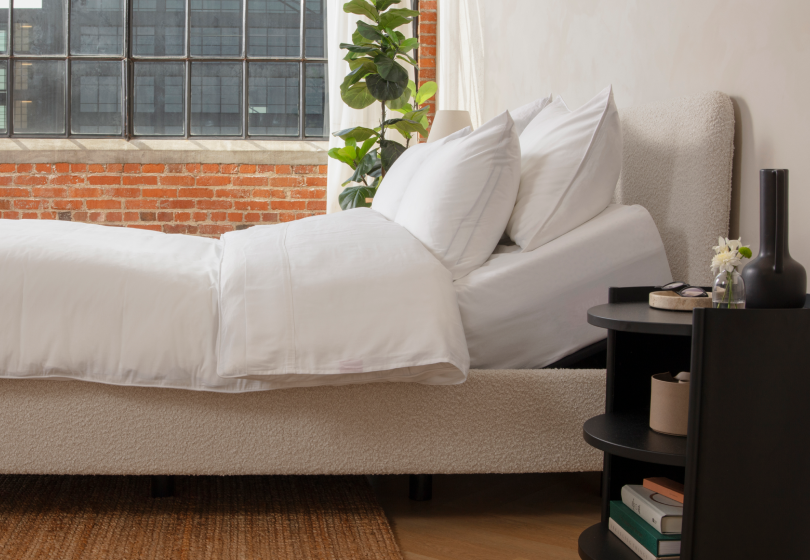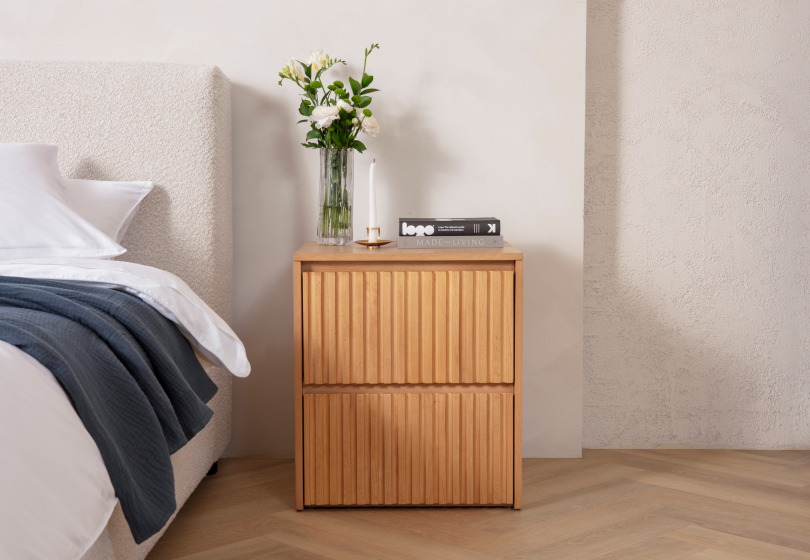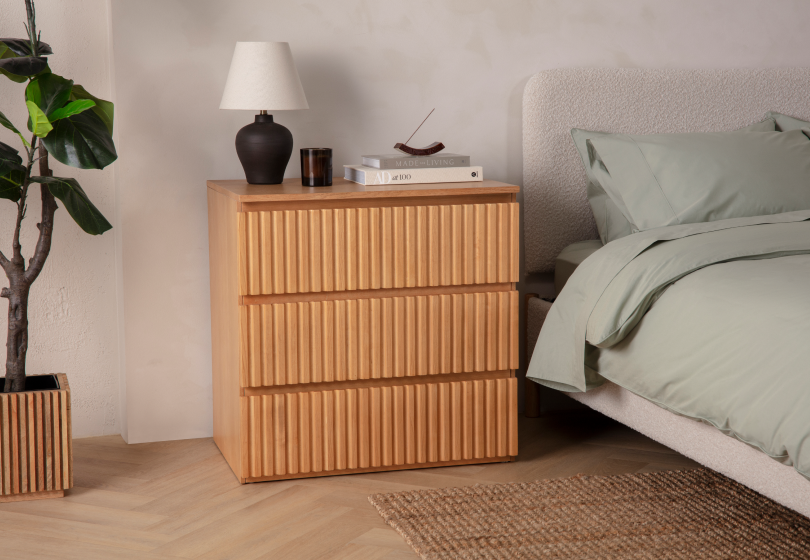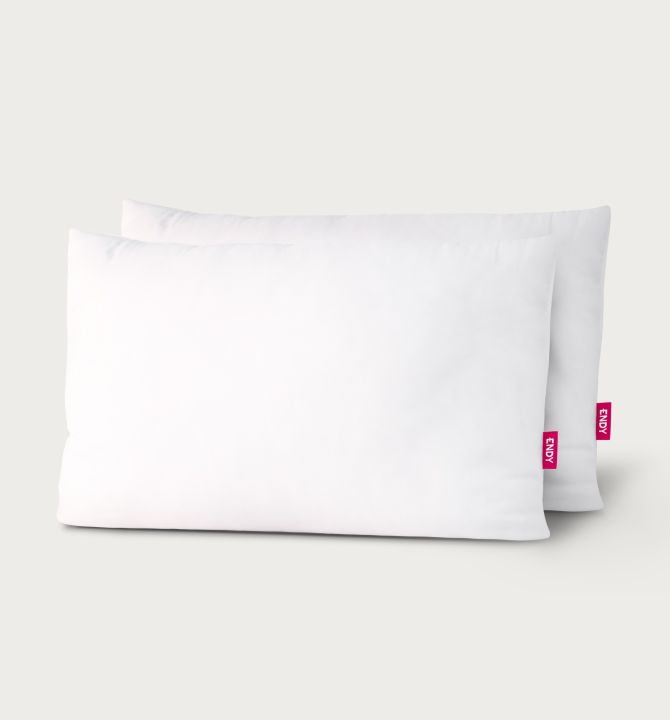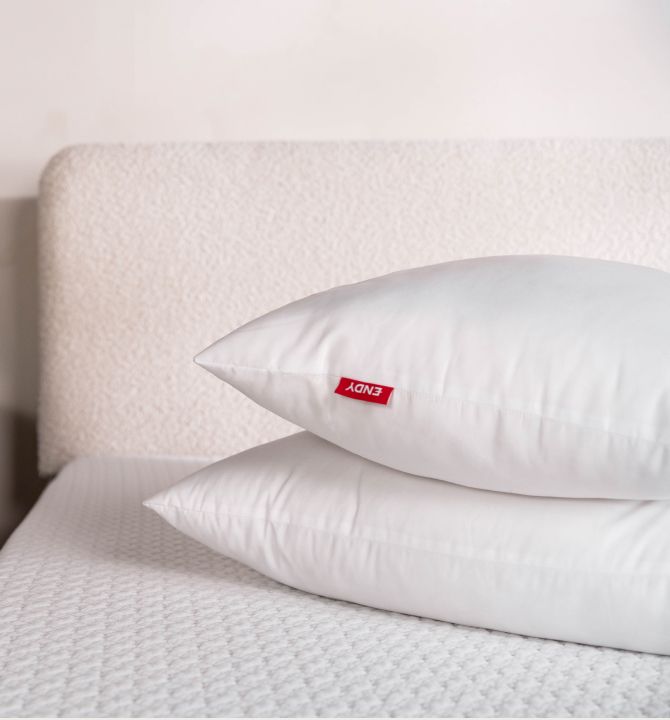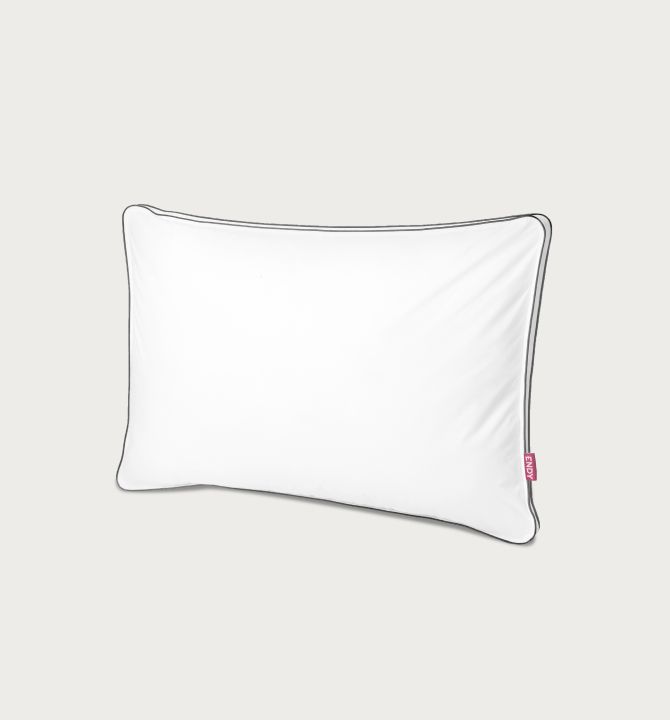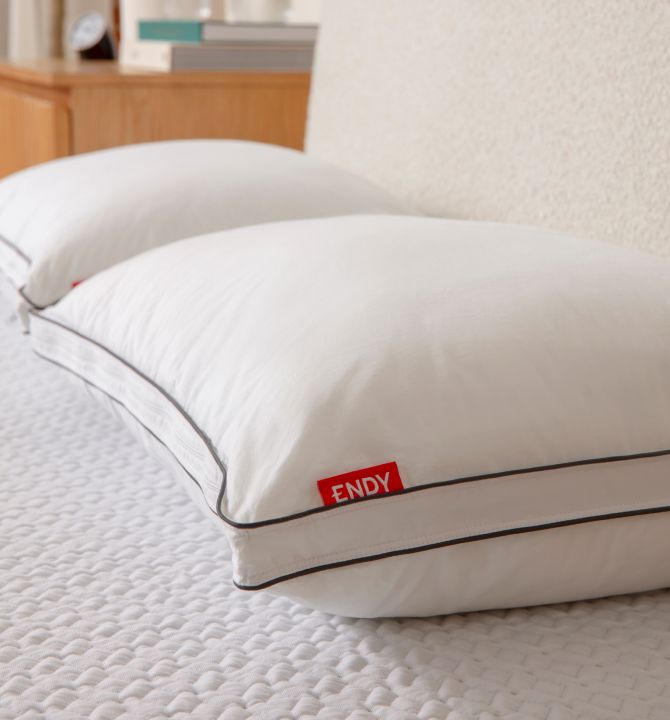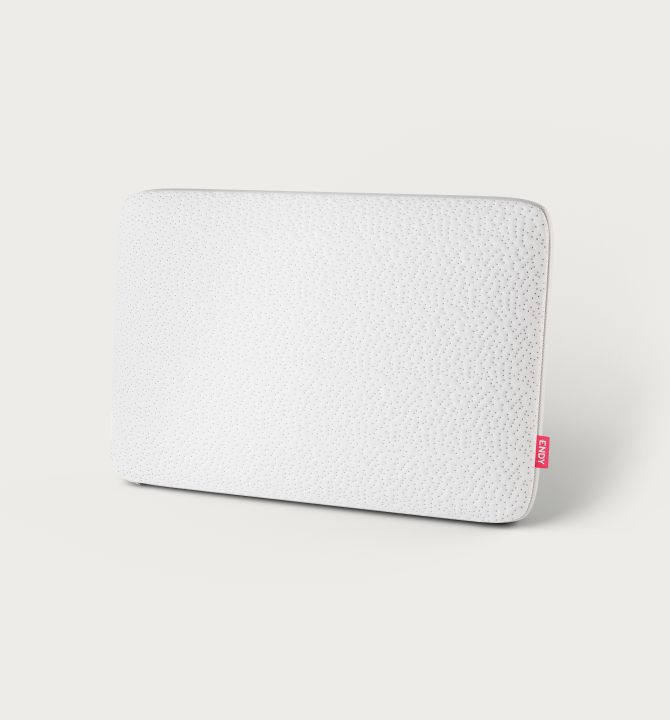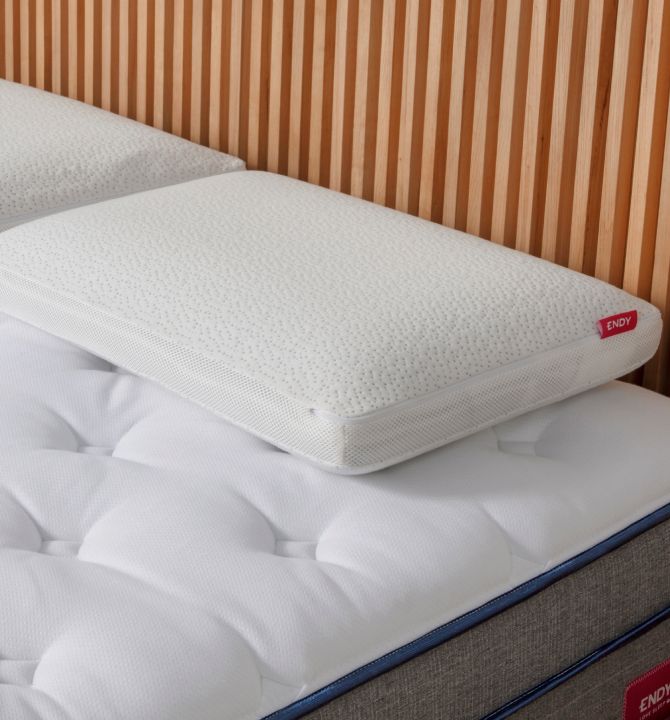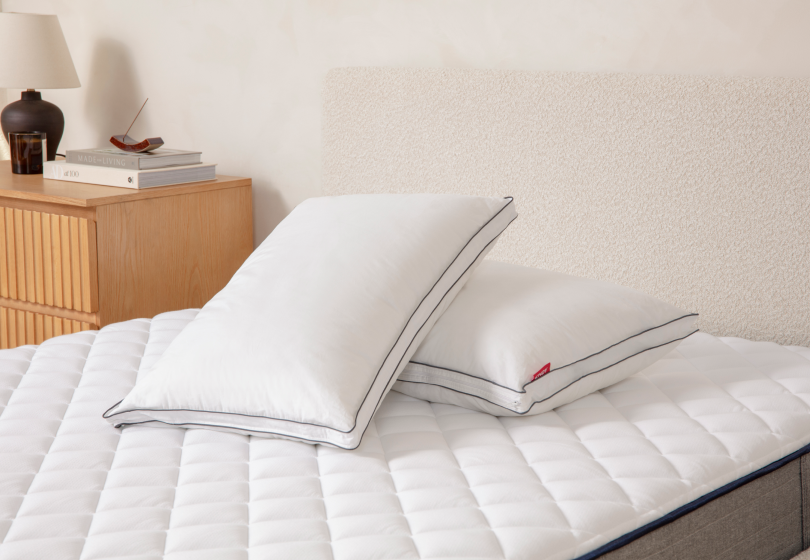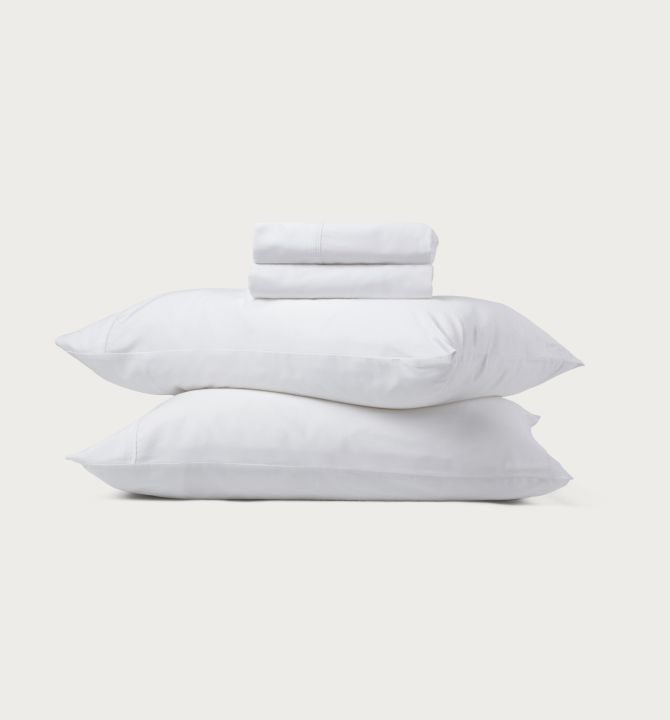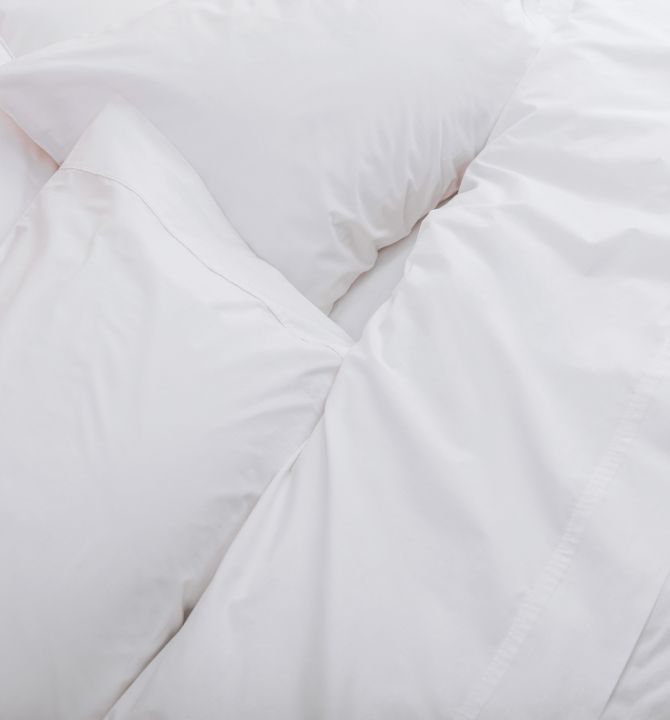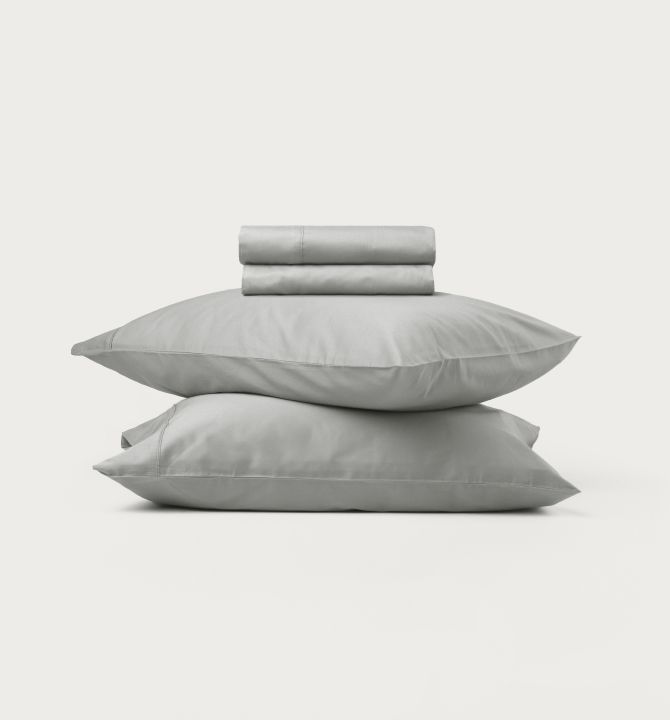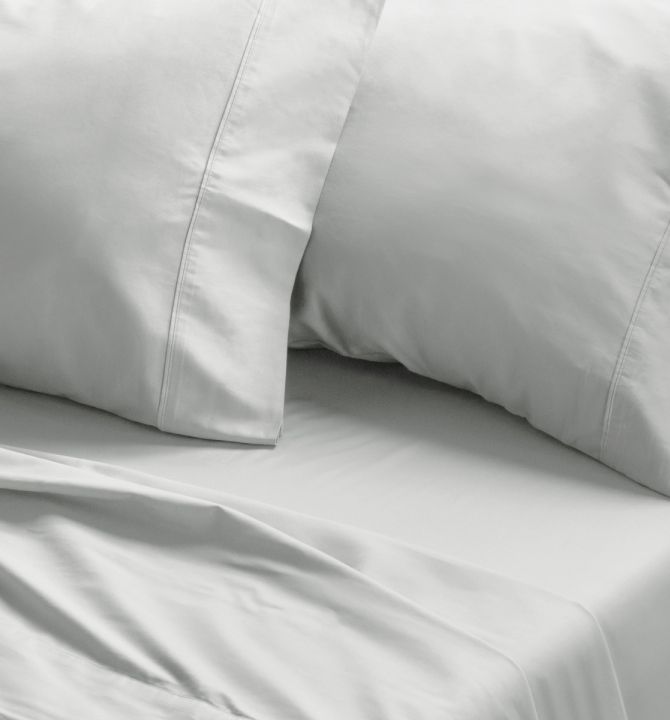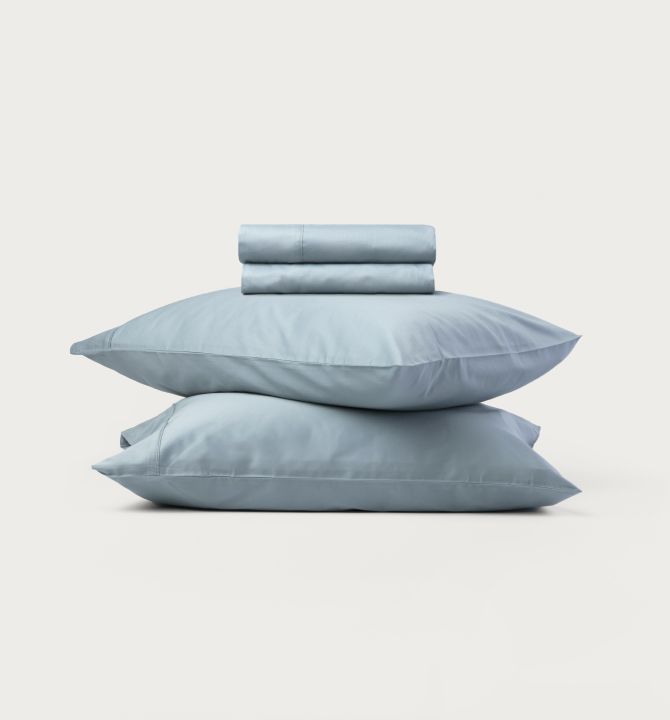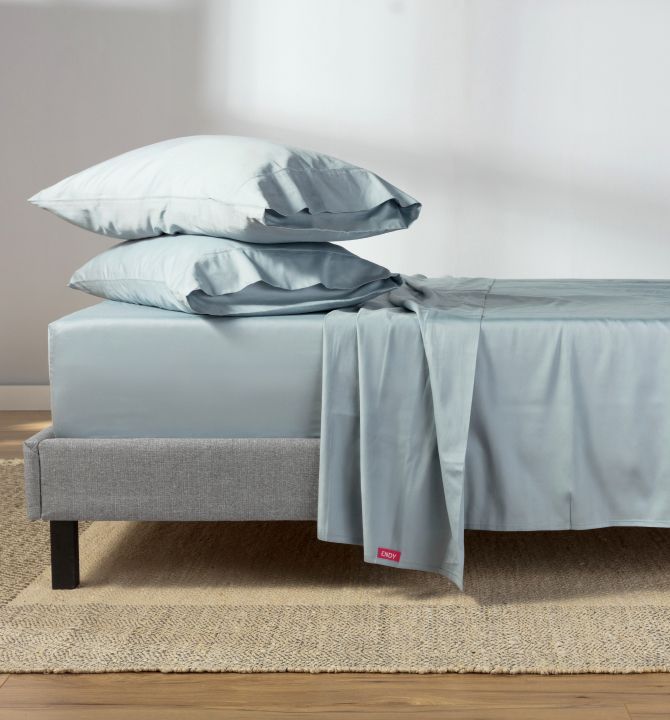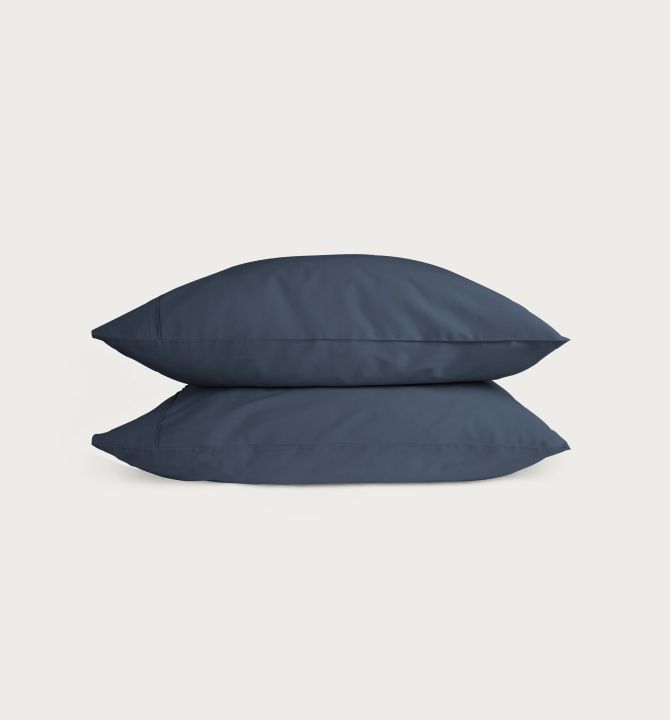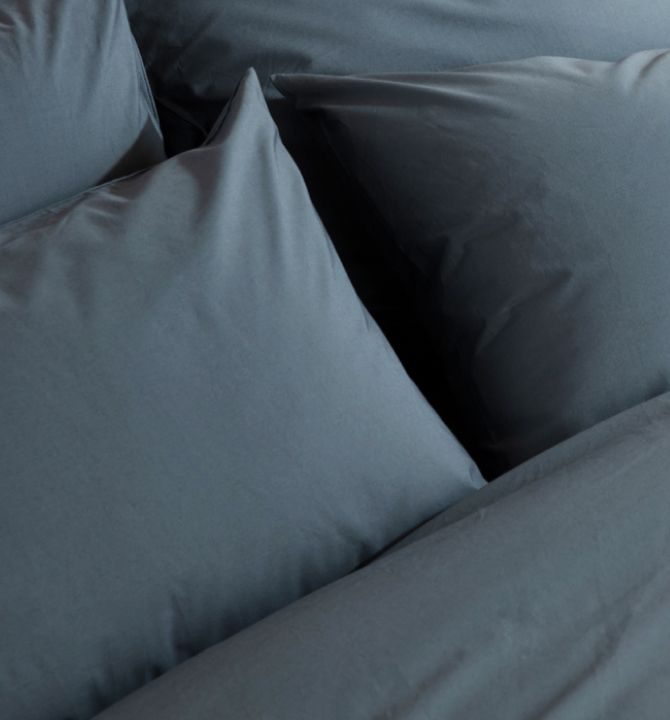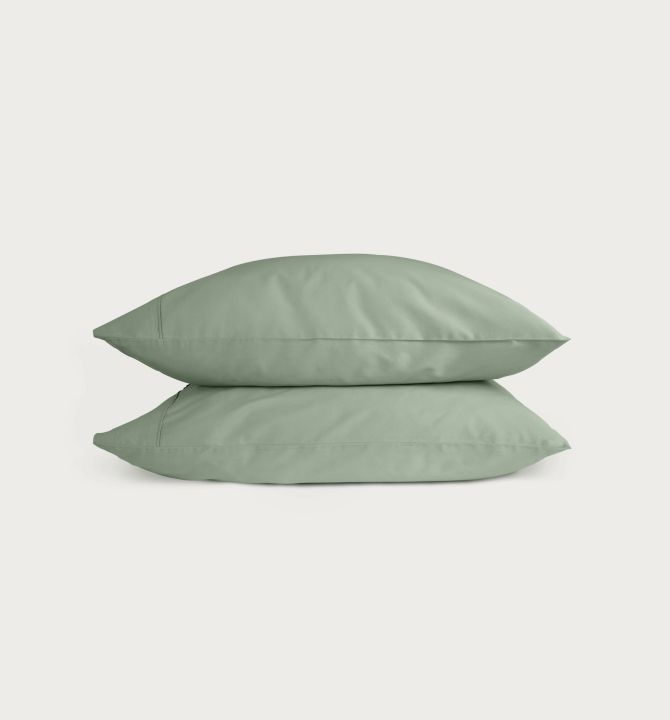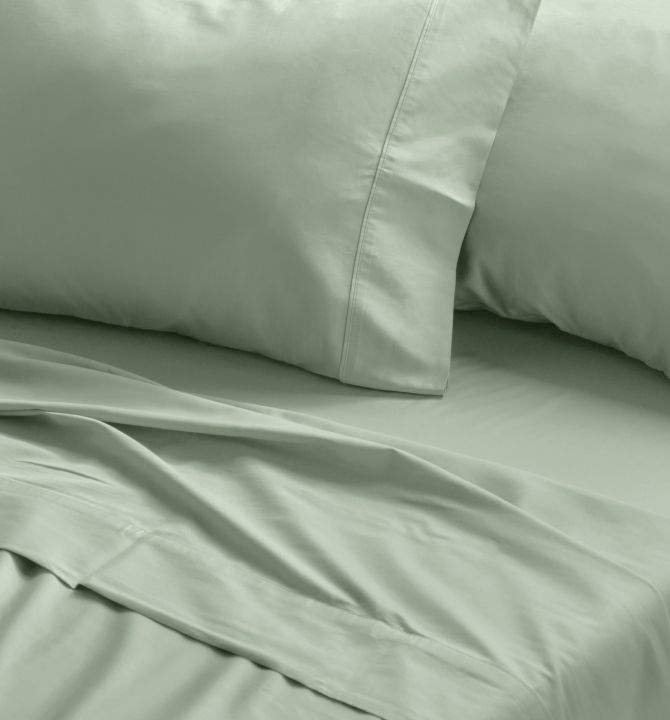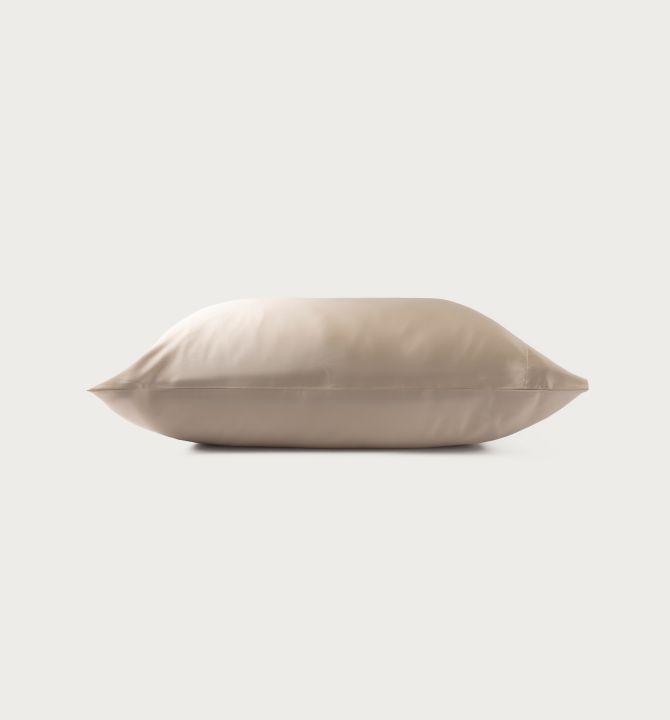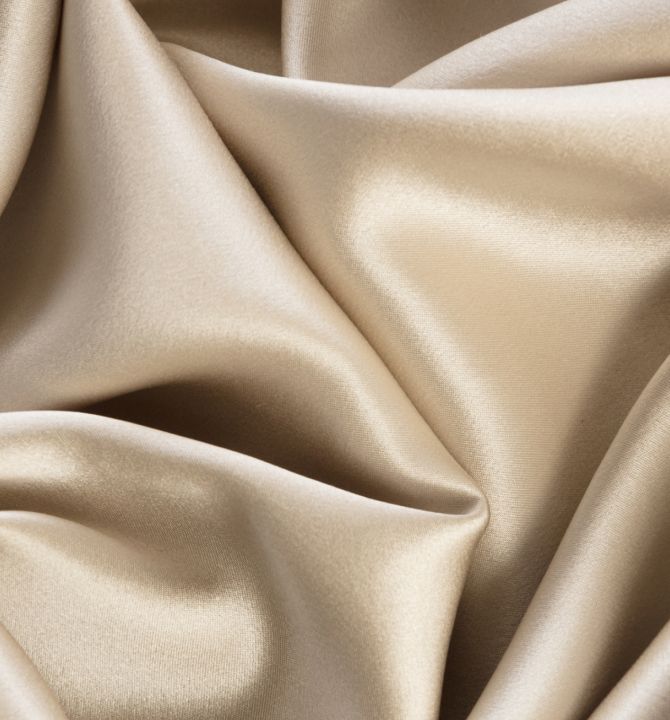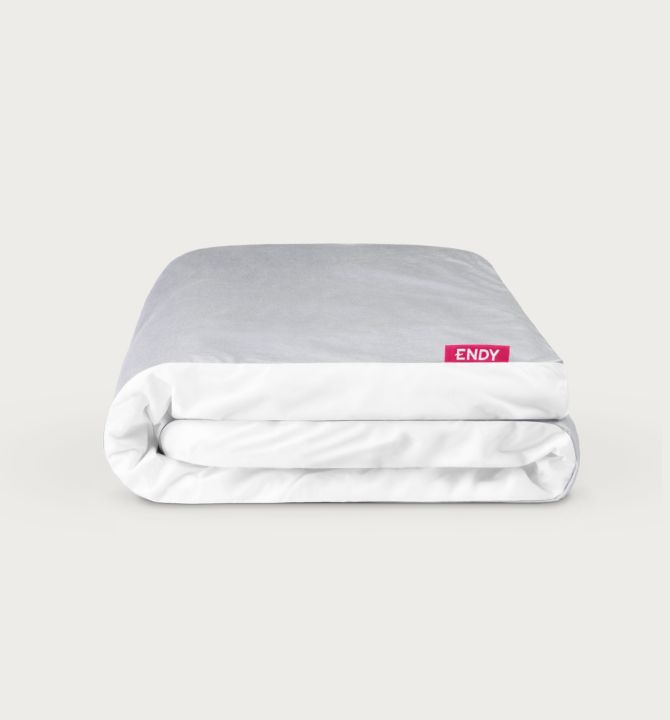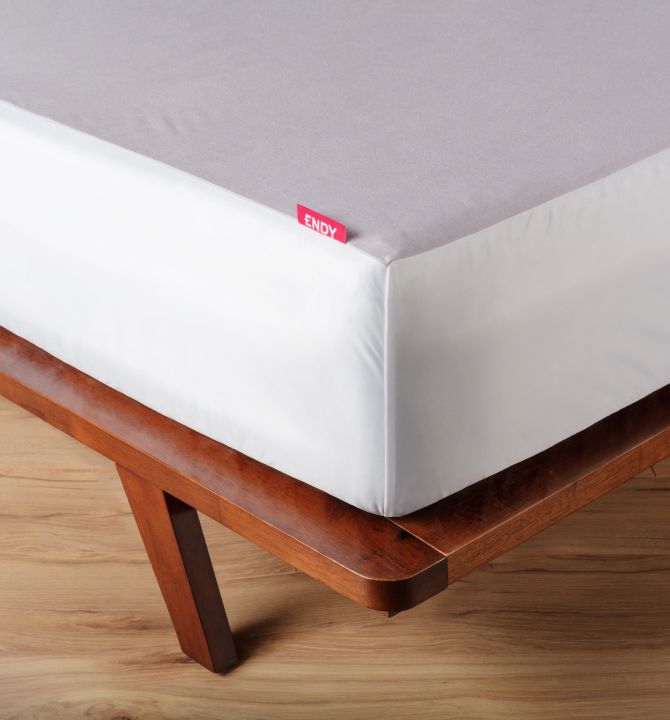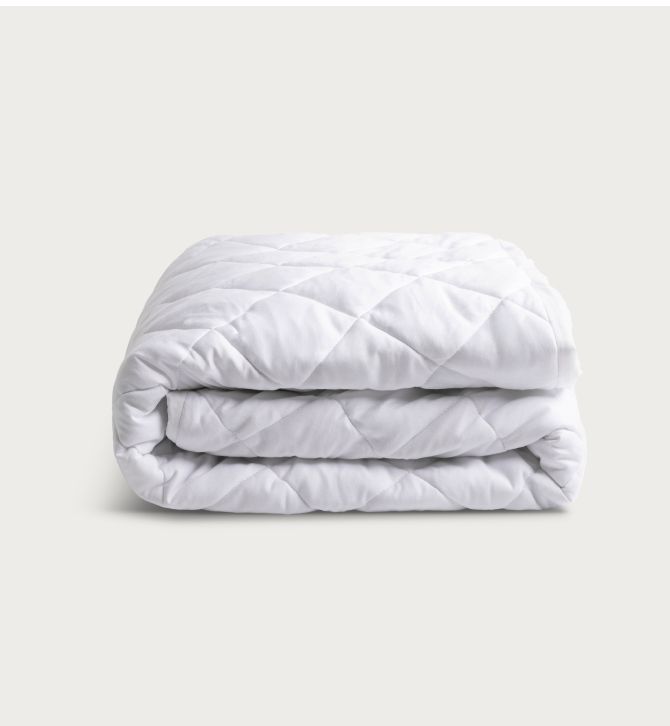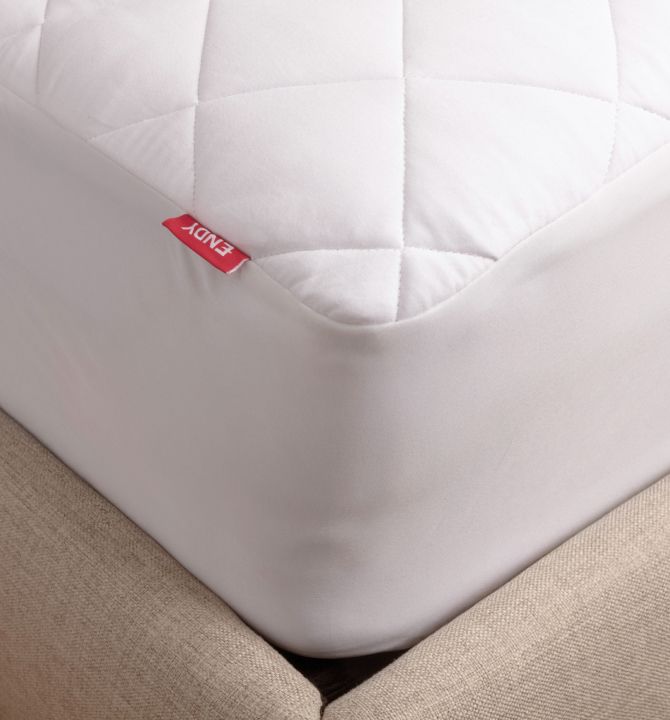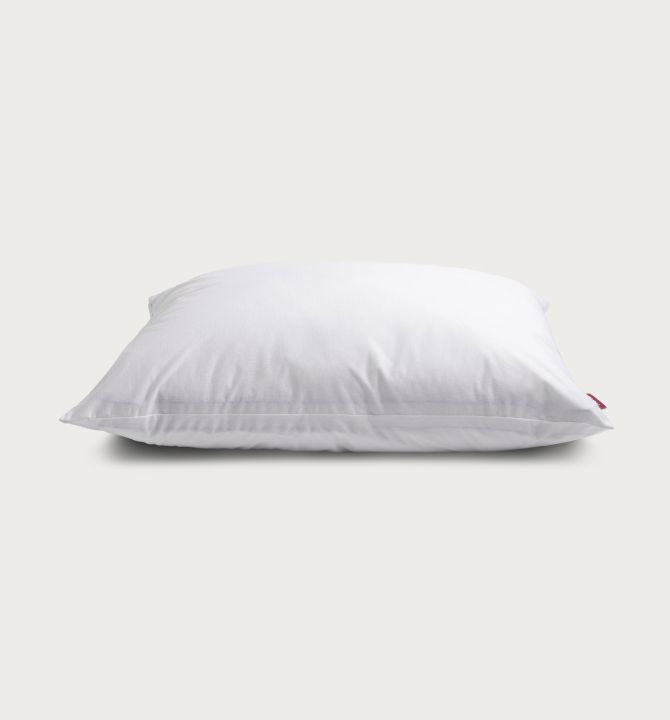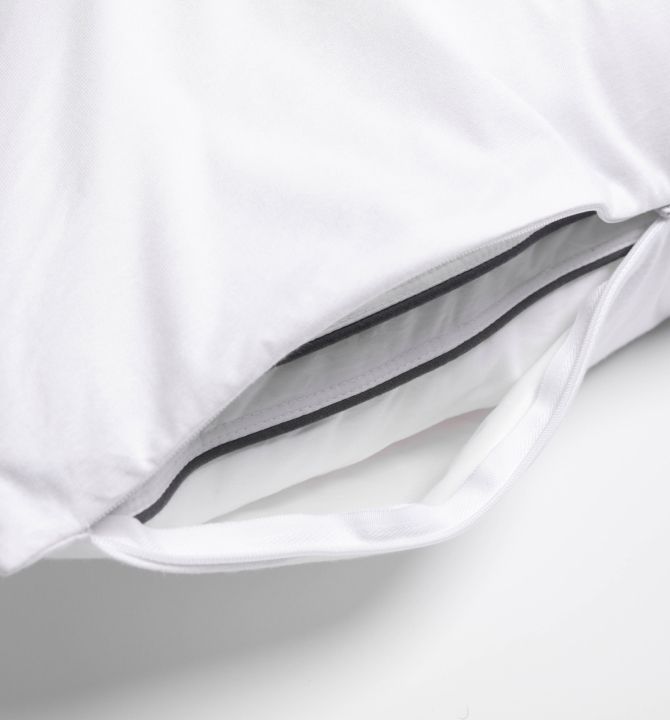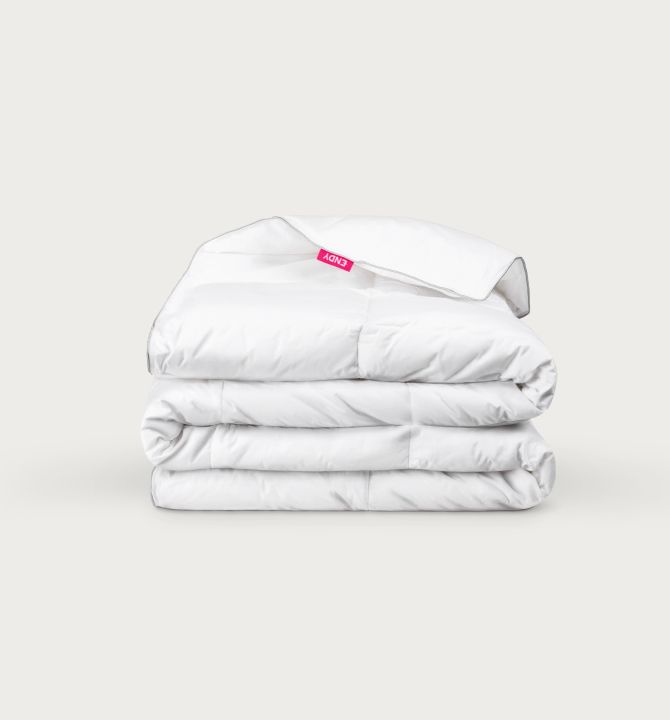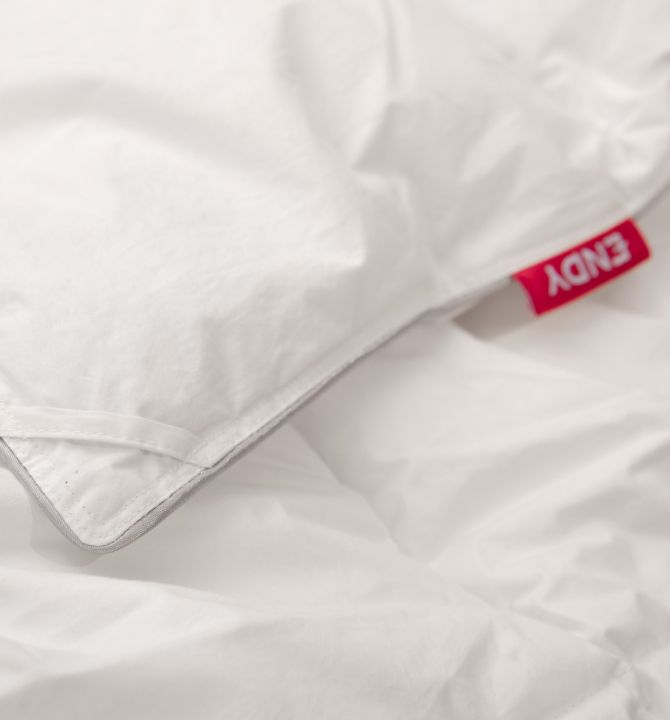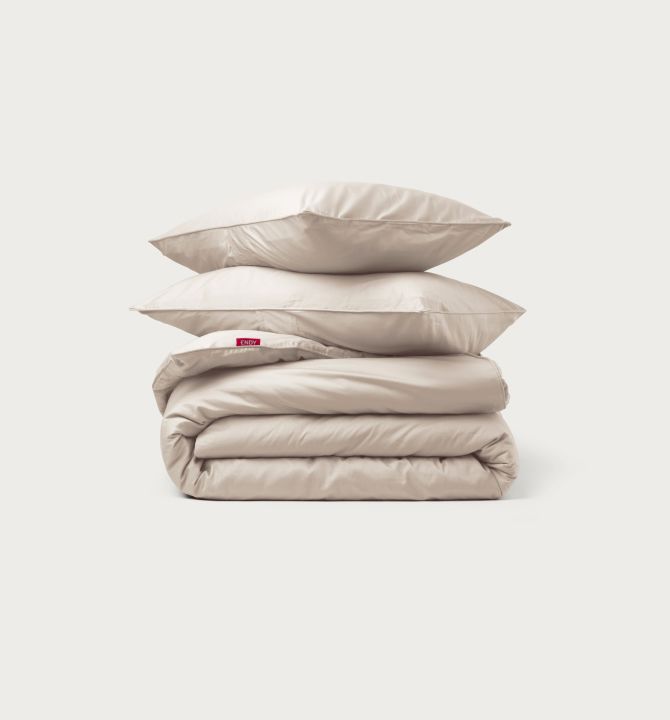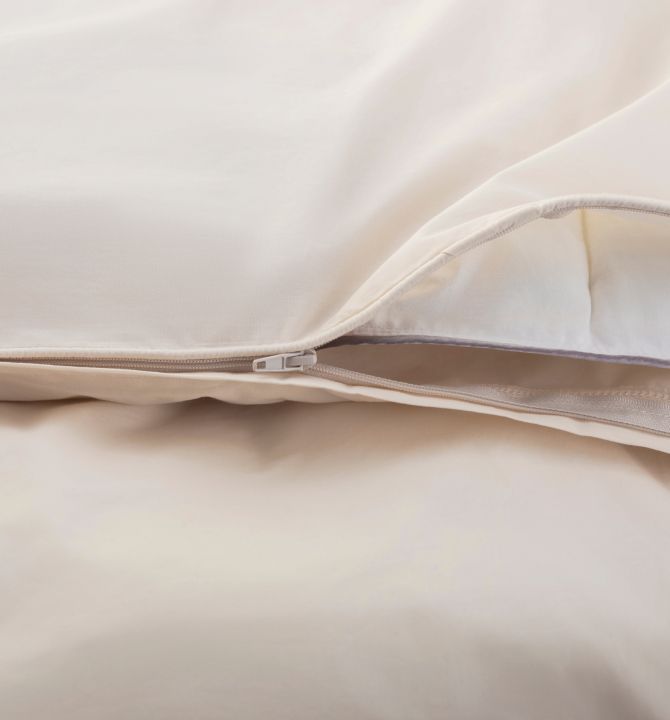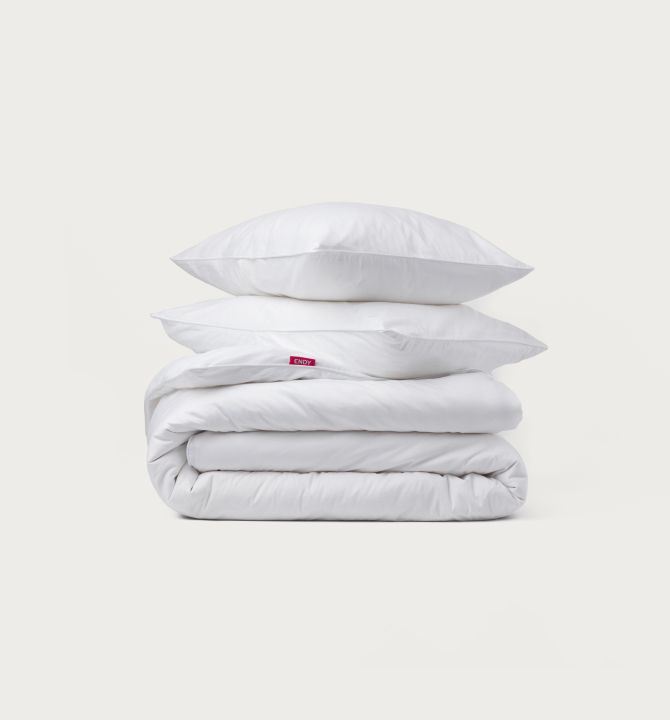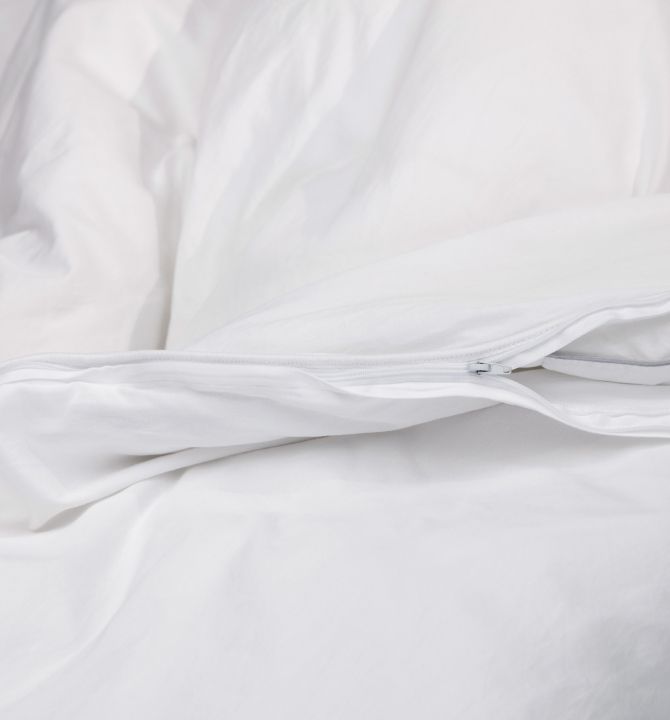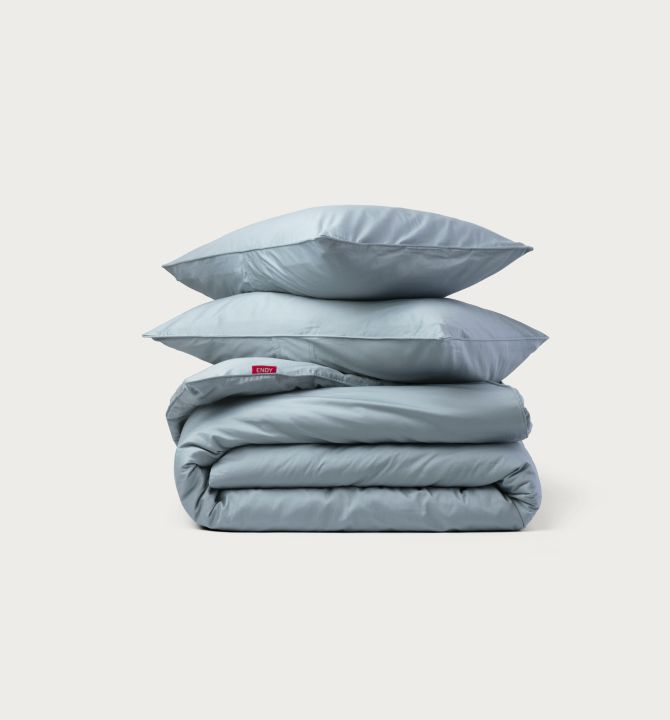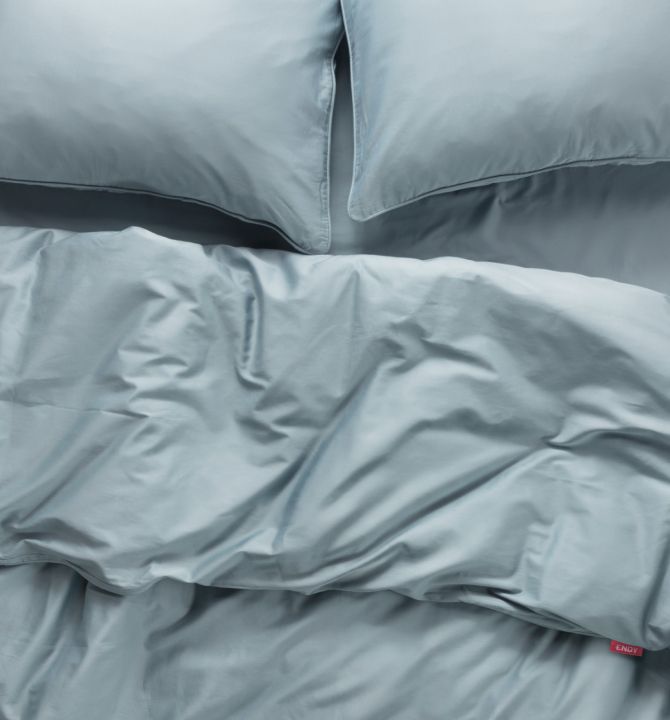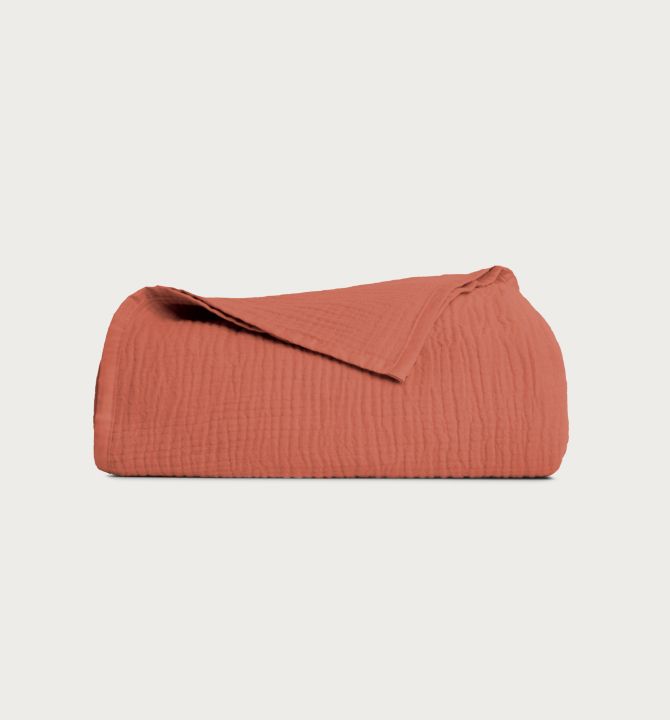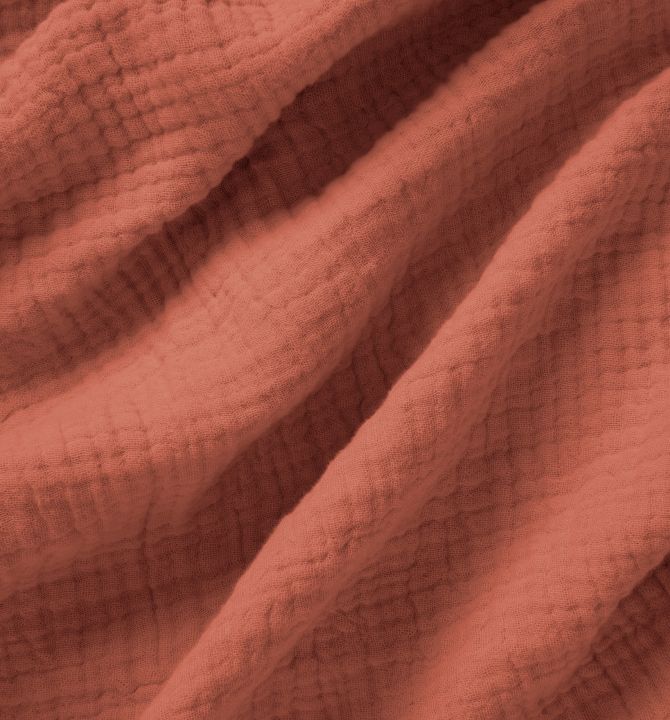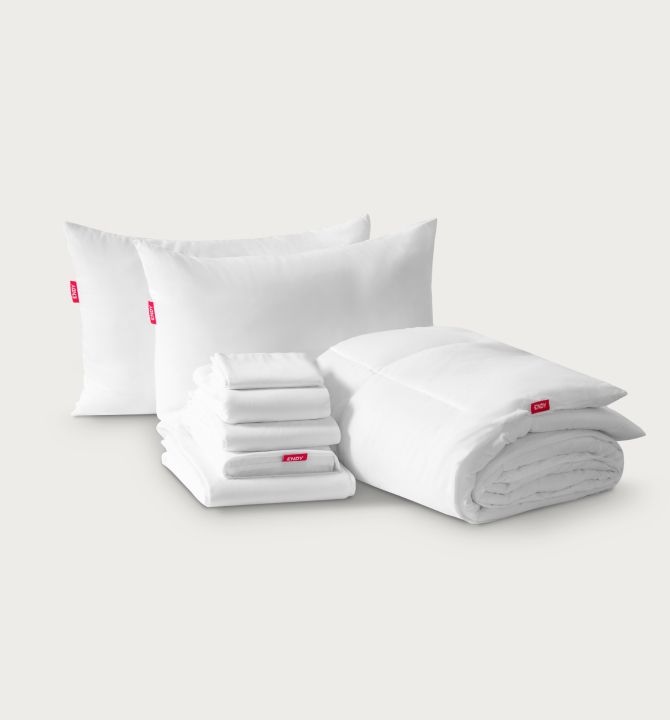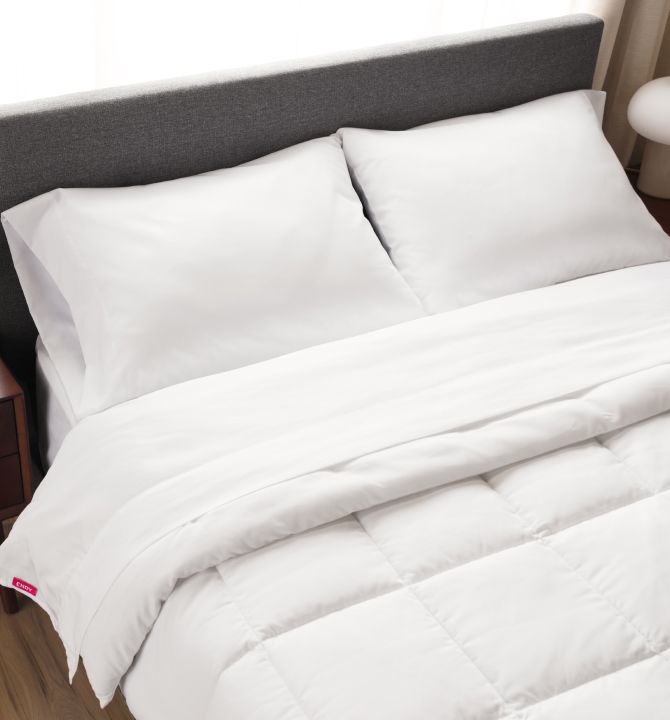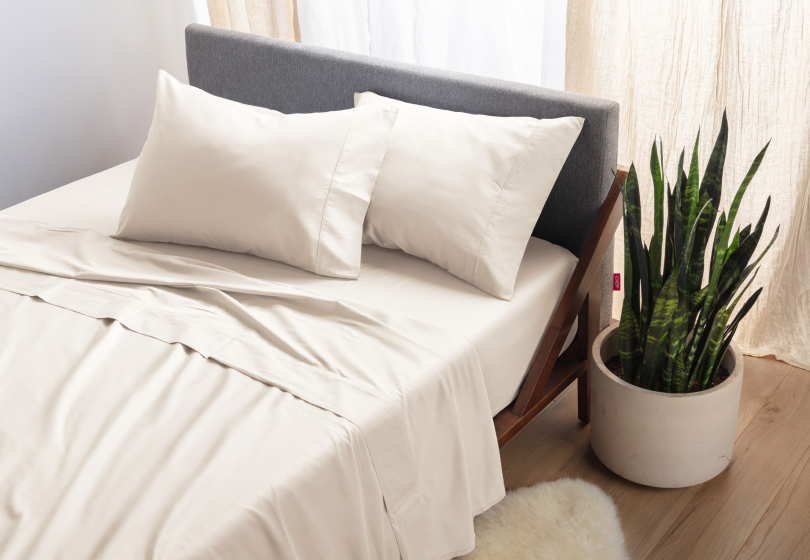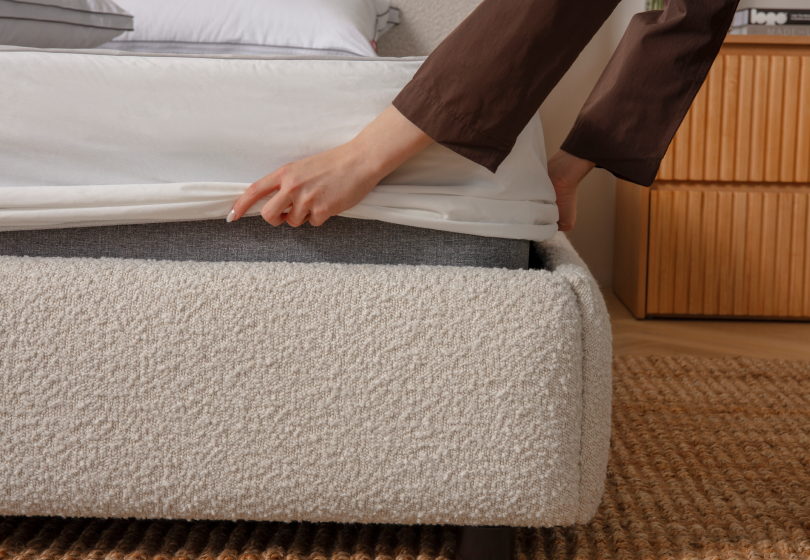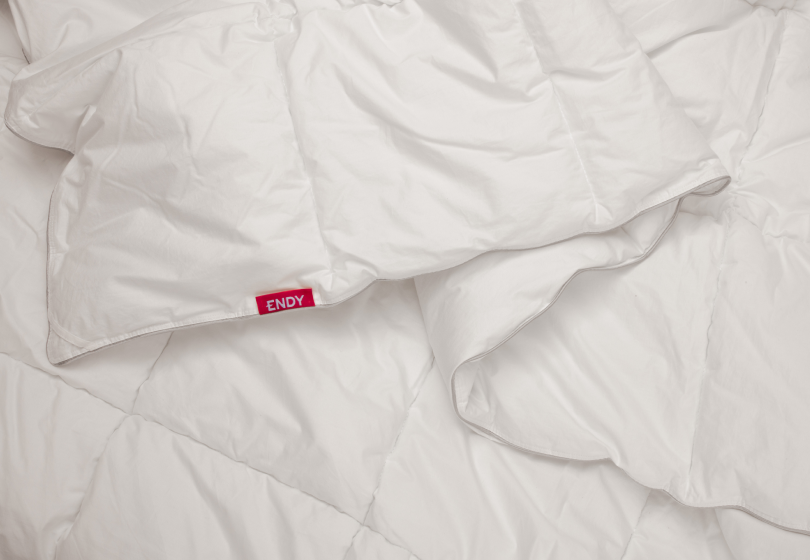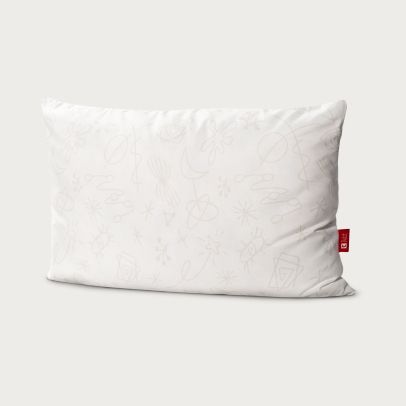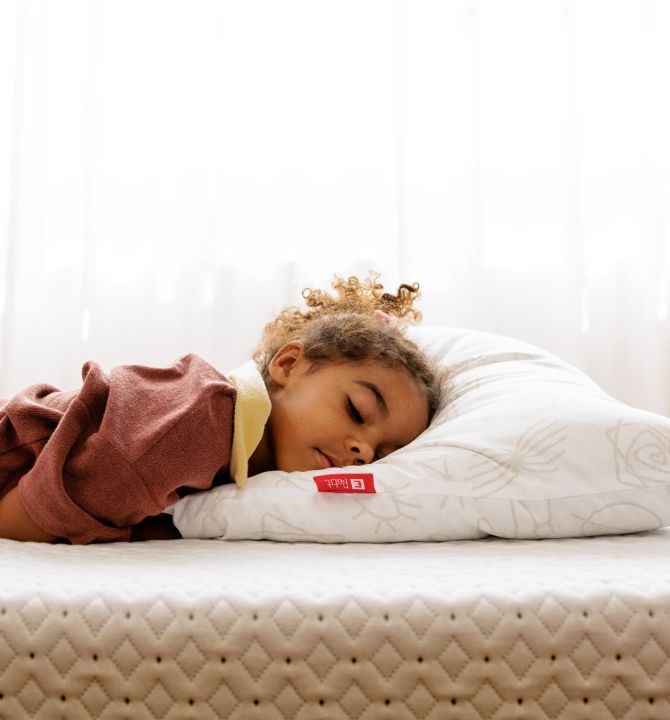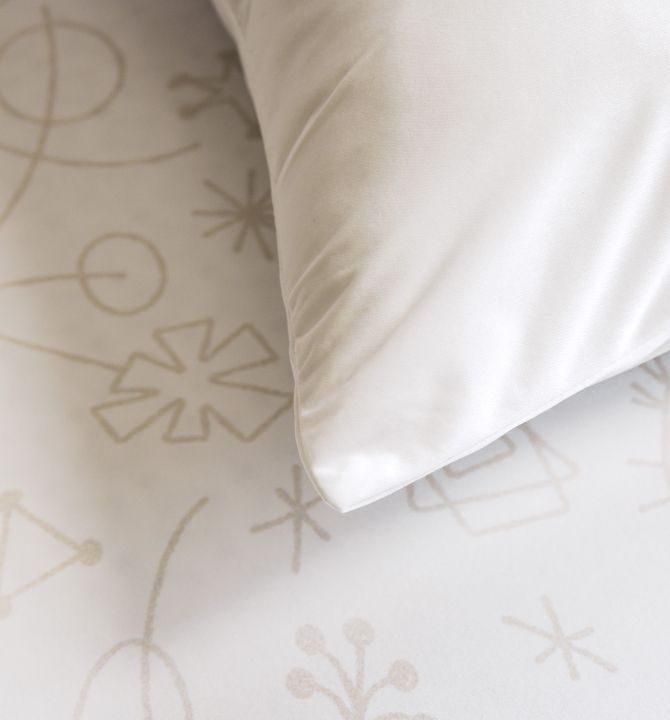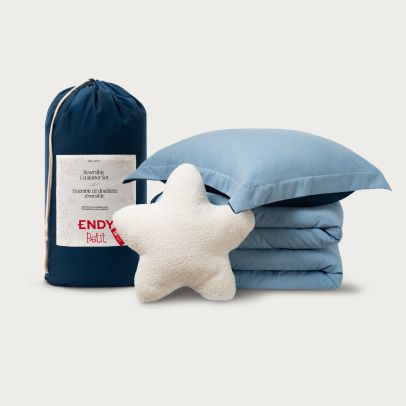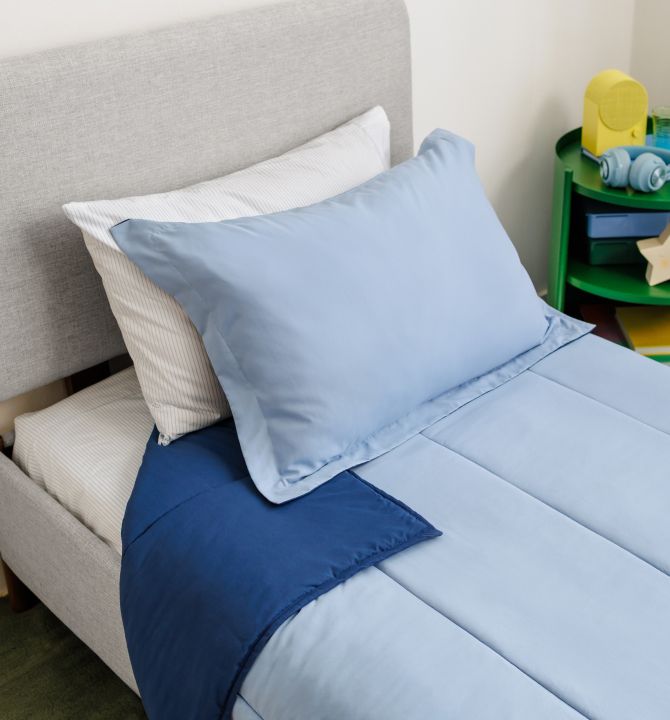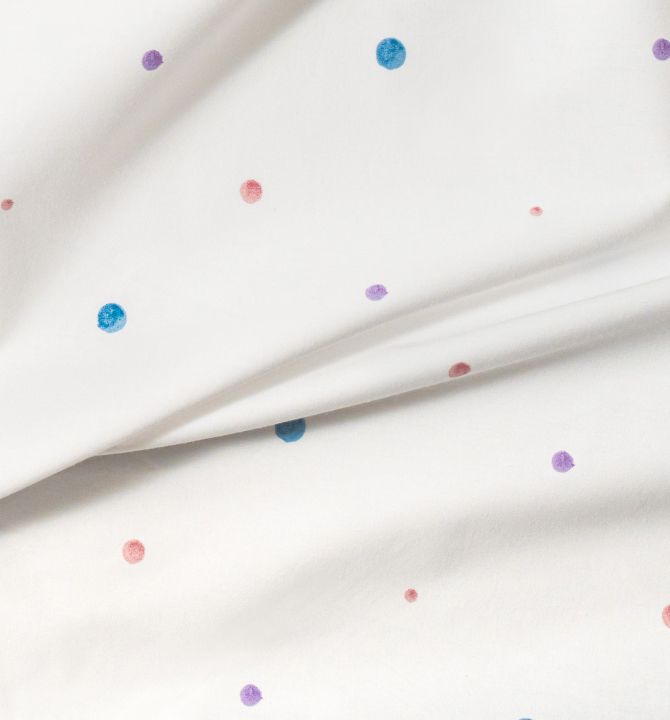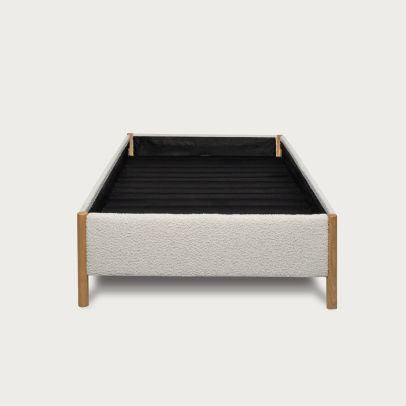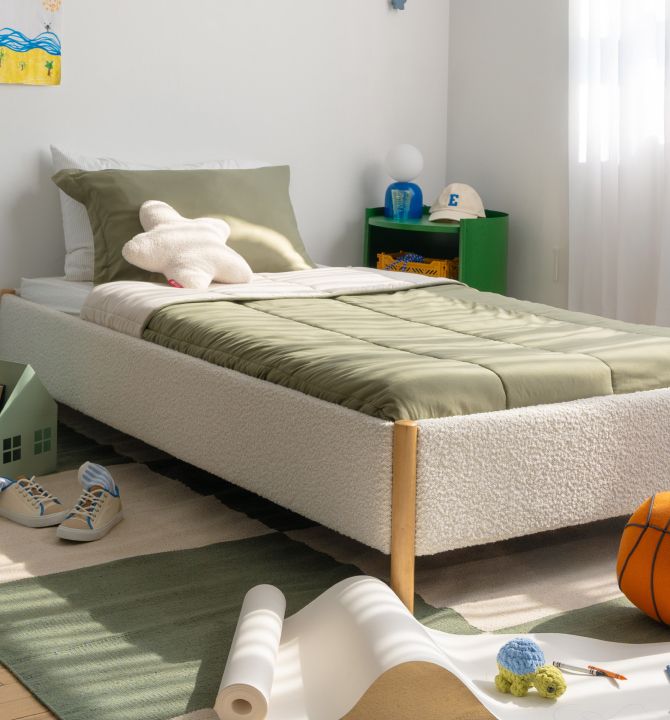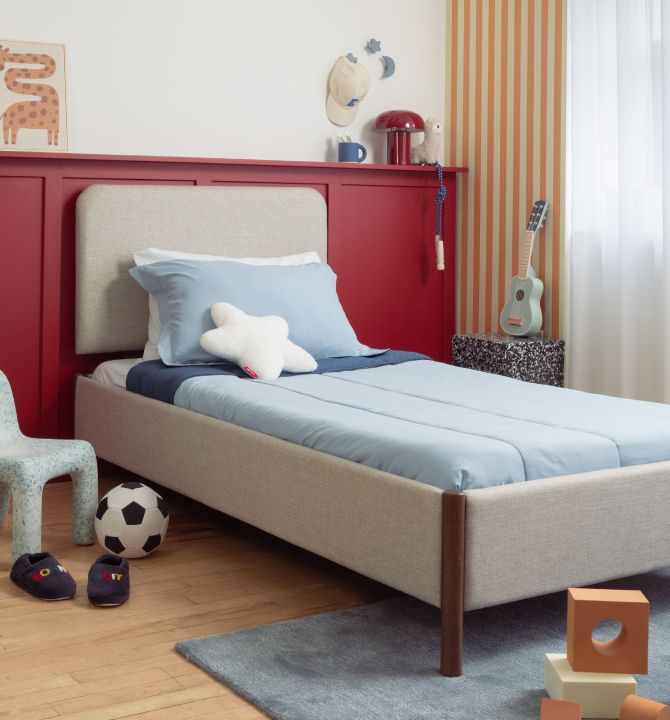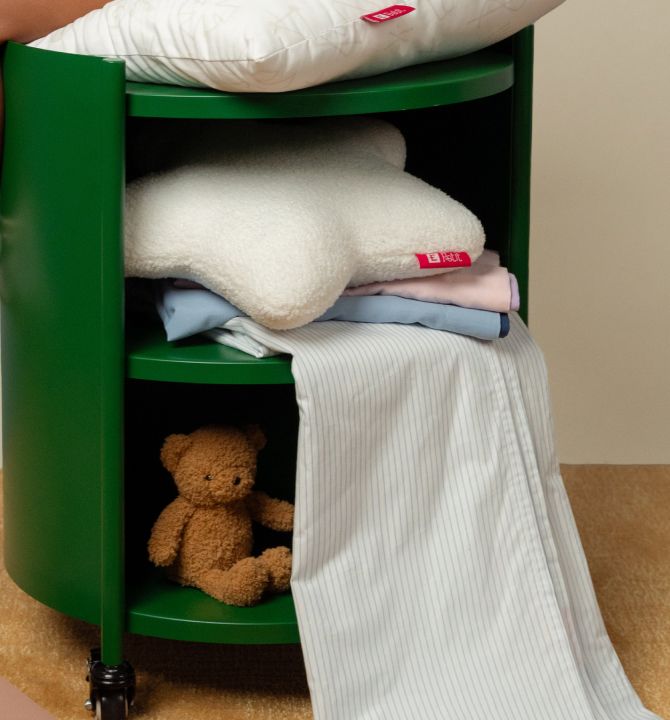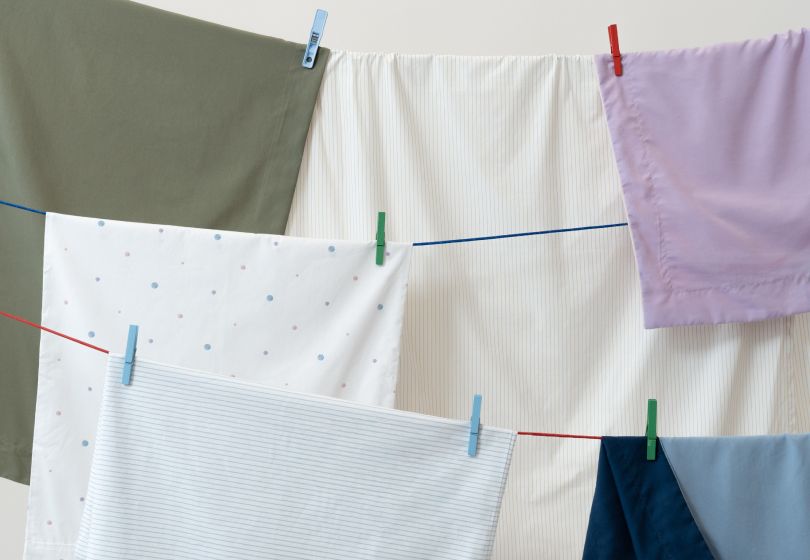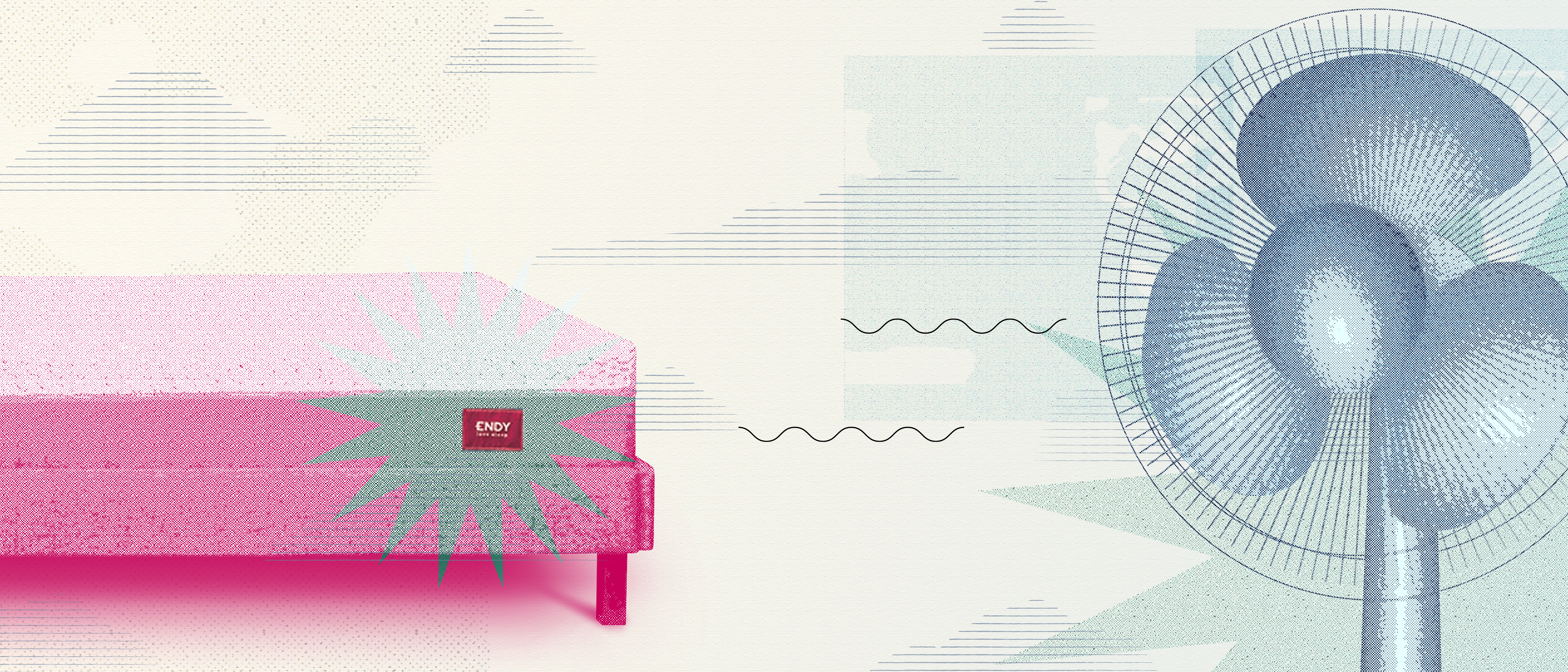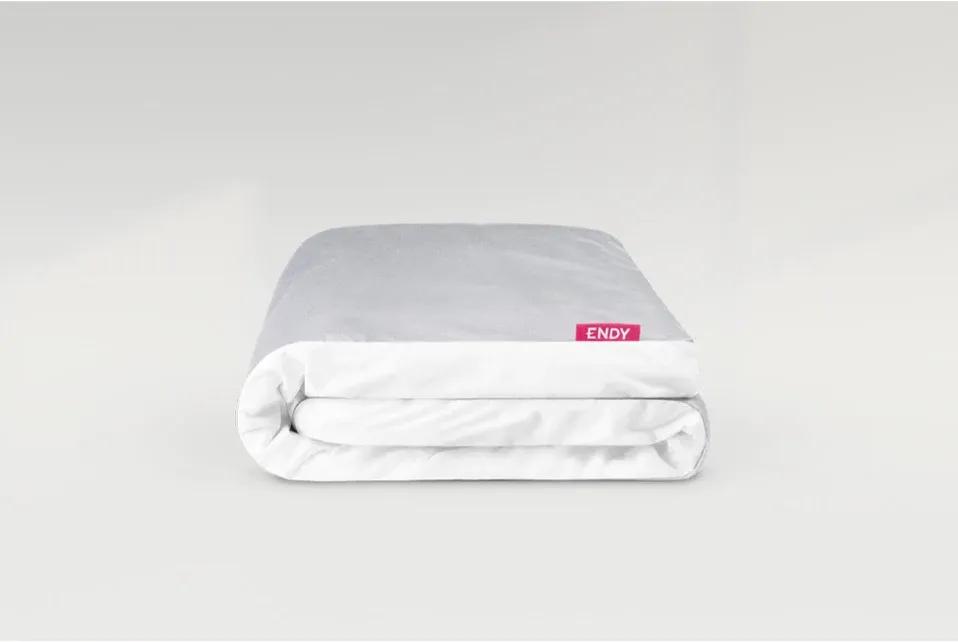Looking for the best hot sleeper mattress? Look no further!
- Why body temperature impacts sleep
- Why some of us are hot sleepers
- What we can do about it to guarantee some decent shut-eye
What does body temperature have to do with sleep quality?
As much as we all love the idea of a warm and cozy sleep, maintaining a cooler body temperature during sleep is generally associated with better sleep quality.When your body is too hot, it can interfere with falling asleep and staying asleep, leading to restlessness, wakefulness, and fragmented sleep—all recipes for fitful and unfulfilling sleep. On the flip side, a slightly cooler sleep environment and body temperature can promote deeper, more restorative sleep.When the body is too warm during sleep, it can disrupt the sleep stages, particularly the REM (rapid eye movement) stage, which is associated with dreaming and cognitive processing. An uncomfortable rise in body temperature can cause more frequent awakenings and lighter sleep overall.In addition to temperature's impact on sleep onset and maintenance, it can also affect the release of sleep-related hormones. For example, a drop in body temperature during sleep helps facilitate the release of melatonin, the hormone that regulates sleep-wake cycles. Elevated body temperature can interfere with melatonin production, making it more difficult to fall asleep.It’s worth noting there’s a degree of subjectivity here, too: Some people may find a slightly warmer sleep environment more comfortable, while others prefer cooler conditions. It's important to find a balance that works for you personally and allows you to achieve restful, uninterrupted sleep.
Why are some people hot sleepers?
Why is this? In general, these are some of the reasons you might be a hot sleeper:
Metabolism
Differences in metabolic rate can affect body heat production. People with a naturally higher metabolic rate tend to generate more body heat, making them more prone to feeling hot during sleep.Hormonal factors
Blame the hormones! It’s true: Hormonal fluctuations can impact body temperature regulation. Women, for example, may experience increased body heat during certain phases of the menstrual cycle, pregnancy, or menopause.Sleep position
Certain sleep positions, such as sleeping on your stomach or in a fetal position, can lead to increased body heat retention. These positions can restrict airflow and create more contact between the body and the bedding, causing warmth buildup.Medications
Other factors, like stress, body weight, and more…
Several other factors may impact sleeping temperature, including age, body weight, medical conditions, overall health, etc. Even stress levels can make you feel hot (and we all know how much those “scaries” like to haunt sleep time.) During periods of stress, the body's stress response is activated, leading to the release of stress hormones like cortisol. These hormones can increase metabolic activity, including body heat production, which can contribute to feeling hot.But it can also be environmental…
Being a hot sleeper can also be caused by external factors. Room temperature is the obvious one here. Sleeping in a room that is too warm or poorly ventilated can contribute to feeling hot during sleep. Insufficient airflow can trap body heat, making it difficult to cool down. But you should also consider:Bedding materials
Some bedding materials, such as synthetic fabrics or heavy flannels, can trap heat and reduce breathability, leading to increased body heat. Choosing breathable and moisture-wicking bedding materials can help alleviate this issue. You may also want to swap to a cooler seasonal duvet and eliminate heavy quilts or throws (if you like the look of them, you can always just pull them off at night.)Mattress type
The type of mattress you sleep on can affect temperature regulation. Certain mattresses, such as traditional memory foam, are known to retain heat more than others. At Endy, we've got a more innovative approach to making the best cooling mattress: Endy’s open-cell foam allows air to pass through and move between cells to help with temperature regulation.Sleepwear choices
Say buh-bye to heavy flannel PJs and socks in bed. Yes, they feel cozy when you’re lounging on the couch, but wearing heavy or non-breathable sleepwear can contribute to feeling excessively warm during sleep. Instead, opt for lightweight and breathable sleepwear that promotes better temperature regulation.Hot sleeper? 4 things you can do about it to sleep cool!
Now we understand a lot more about why you might be a hot sleeper; you’re probably anxious to learn what you can do about it! Good news: There are a lot of easy things you can do to set yourself up for success at bedtime if you’re a hot sleeper:1. Ditch your hot sleeper mattress and swap it for a cooling mattress
A good mattress is literally and figuratively the foundation for a good night’s sleep, so let’s start there. Now, mattress preferences and requirements can be highly personal but here are some general things to consider when choosing a cooling mattress:We recommend purchasing high-quality foam cooling mattresses like our Endy Mattress or our Hybrid Mattress.Our award-winning Endy Mattress has an open-cell structure that allows air to pass through and move between cells to help with temperature regulation.
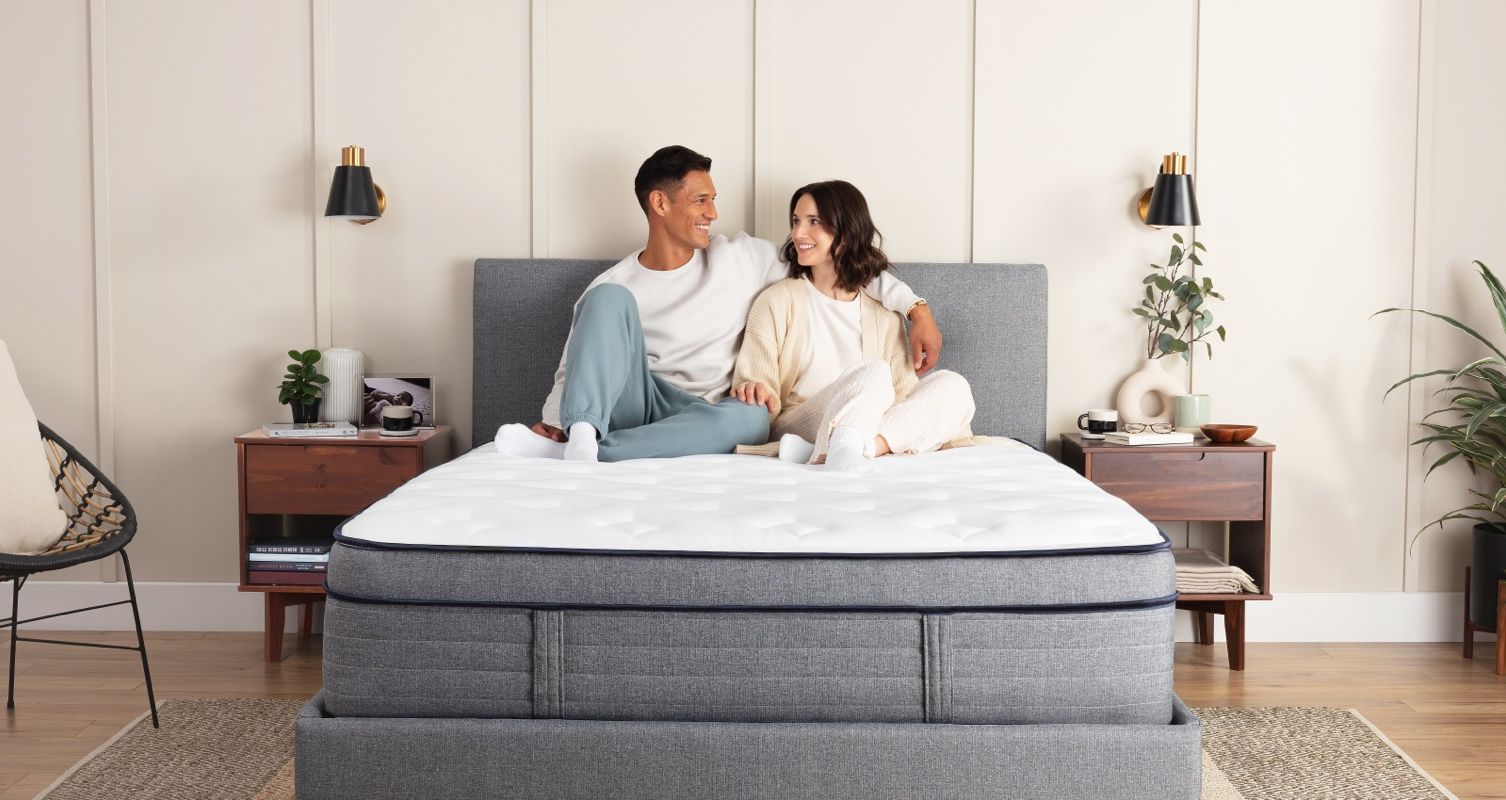
2. Swap out your bedding for something lighter, more breathable
It’s not just the mattress—it’s also what you put on it! Let’s take it layer by layer:Mattress Protector
Some mattress protectors (especially waterproof ones) can prevent air circulation and impede the cooling effects of your mattress. You don’t want to undo all the good work you did selecting the right mattress, so choose a breathable mattress protector. Endy’s Mattress Protector is topped with 100% soft, sustainable TENCEL™ fibres for a cool night’s sleep.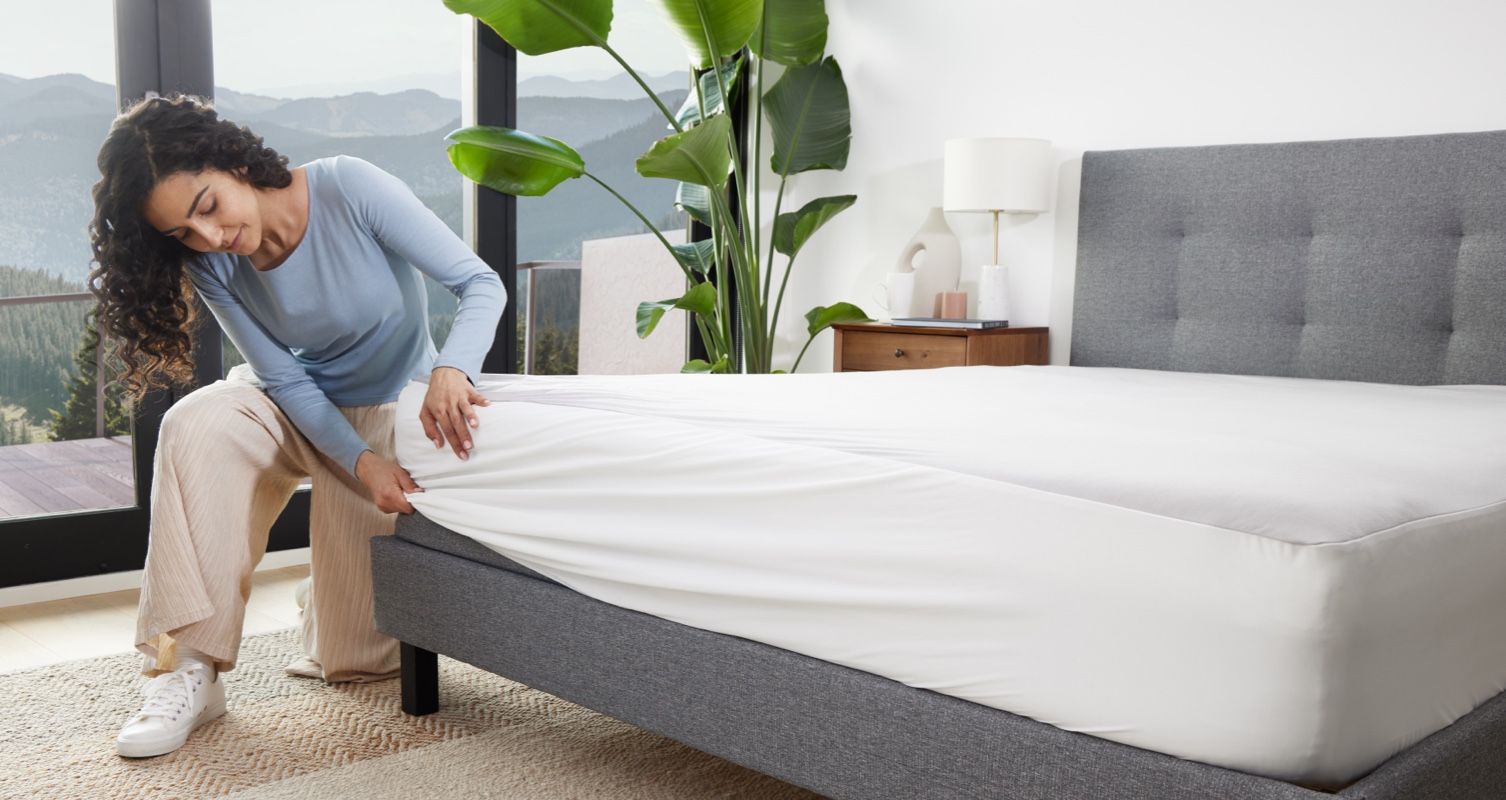
Sheets
You want to go natural here and a sateen, smooth finish always feels cool against the skin. Endy’s Sheets are made with lightweight and airy 100% organic cotton in a sateen weave for a cooler night’s sleep. Sleep easy knowing these sheets are naturally hypoallergenic and machine washable.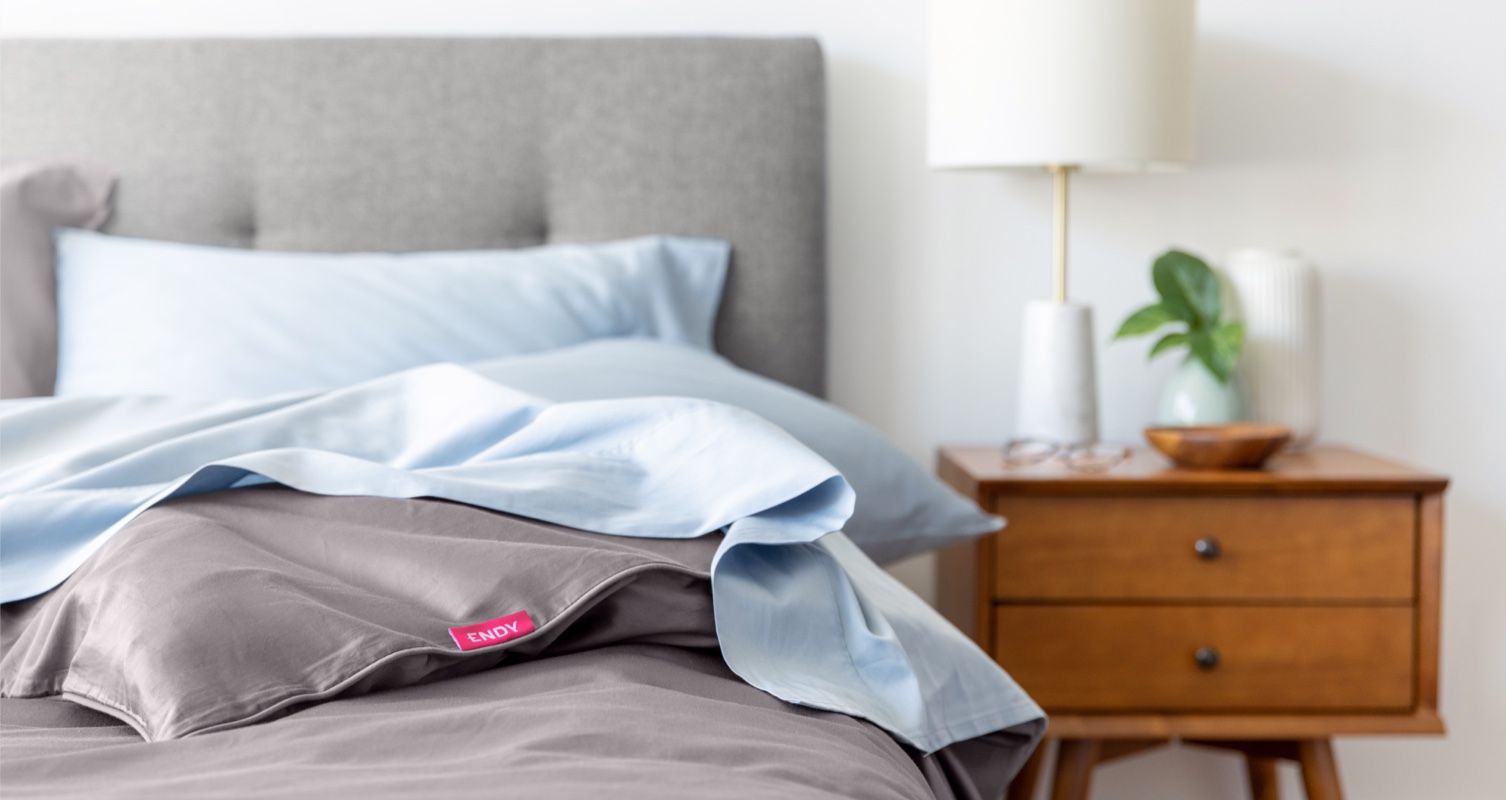
Duvet
You can get high maintenance with duvets: A summer-weight one and a winter-weight one. If that sounds like too much for you and you just want the perfect Goldilocks duvet for year-round comfortable sleeping, check out the Endy Duvet. It’s made with hypoallergenic premium down alternative fill and a 100% cotton shell for year-round comfort in every Canadian season.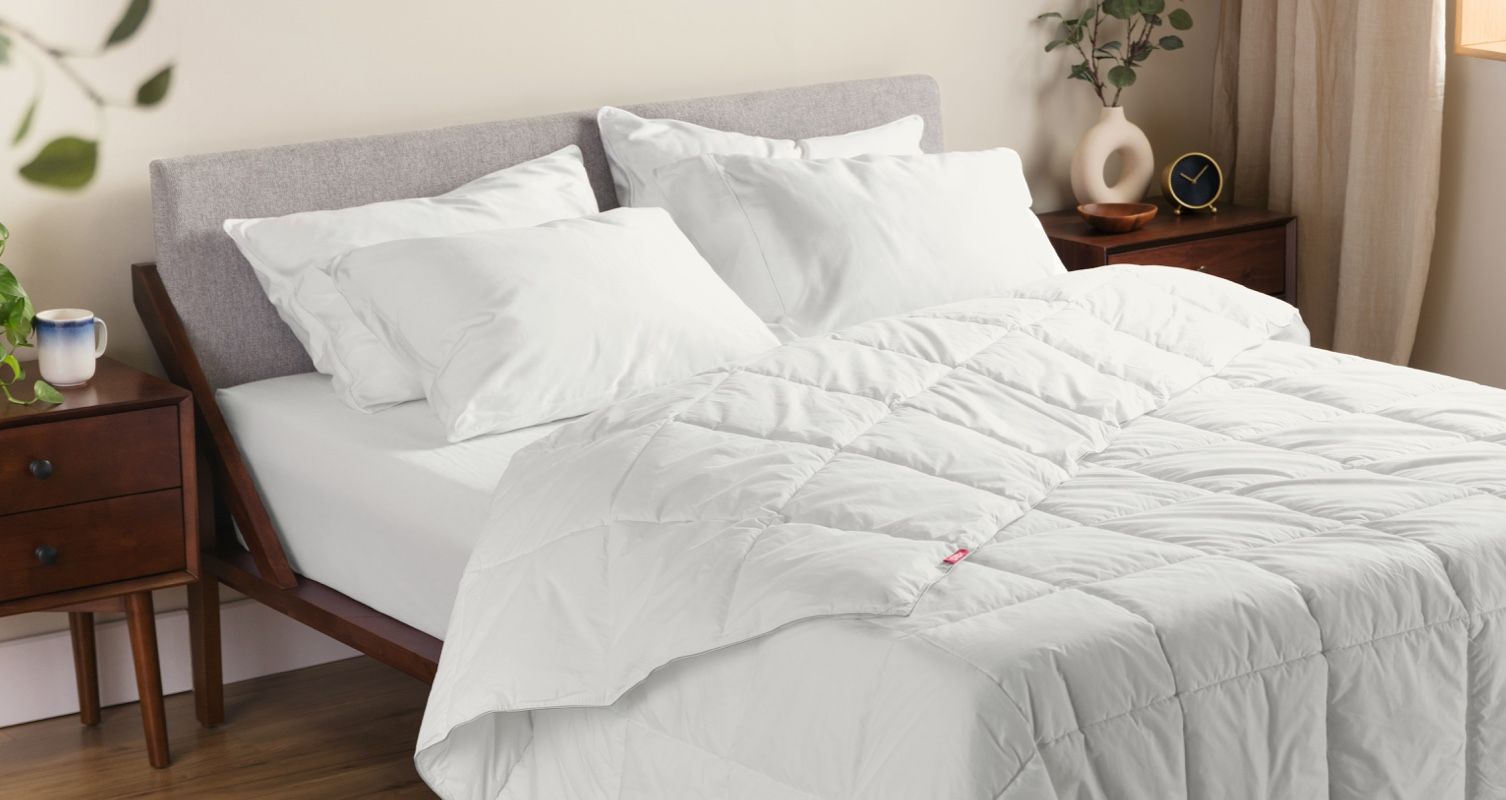
3. Adjust the room temperature or add air circulation
Not to sound like Captain Obvious here, but you also want to look beyond the bed at what’s going on with your room temperature. We get it: Not everybody has central air conditioning and some apartments don’t allow you to adjust heating in the winter. But if you can, make sure you bring that bedroom temperature down.4. Relax before sleep—manage your stress levels
As mentioned earlier, stress levels can make you feel hot and bothered around bedtime. So it just makes good sense to relax your body and mind before you try to hit the hay. This can mean stepping away from doom-scrolling on your phone, journaling to get any negative thoughts or concerns out, or even trying some sleep meditations (there are amazing apps for that, like Headspace and Calm).Whatever your brand of relaxation is, try to establish some nighttime rituals that get you into that zen state.FAQs about being a hot sleeper:
Is it normal to be a hot sleeper?
Yes, being a hot sleeper can be considered normal for some individuals. People have varying temperature preferences and sensitivities, and what feels comfortable for one person may not be the same for another. Some individuals naturally tend to generate more body heat or have a lower tolerance for warmth, making them more prone to feeling hot during sleep.Additionally, factors such as metabolism, hormonal fluctuations, room temperature, bedding materials, and sleep environment can contribute to individual differences in temperature regulation during sleep. These factors can vary from person to person and can influence how hot or cool someone feels during sleep.However, it's important to note that if feeling excessively hot during sleep significantly disrupts sleep quality, causes discomfort, or is accompanied by other concerning symptoms, it may be worth discussing with a healthcare professional. They can help evaluate if there are any underlying medical conditions or specific factors contributing to the excessive heat sensation during sleep.
How do I know if I'm a hot sleeper?
Confused about whether you're a hot sleeper? Consider the following signs:Waking up sweaty
Waking up drenched in sweat or experiencing night sweats can be a clear indication that you're a hot sleeper.Discomfort and restlessness
If you often find yourself tossing and turning, struggling to find a cool and comfortable position, or feeling restless due to heat during sleep, you may be more sensitive to higher temperatures.Preference for a cooler sleep environment
Pay attention to your preferences regarding room temperature and bedding. Do you find yourself naturally gravitating towards cooler sleep environments, such as using lighter bedding, turning on fans or air conditioning, or seeking cool spots on the bed?Sleep disruption
If you consistently experience disrupted sleep patterns, wake up frequently throughout the night, or have difficulty falling asleep due to feeling too warm, it may suggest that heat is affecting your sleep quality.It's important to remember that individual variations exist, and everyone has unique temperature preferences and sensitivities. Understanding your own sleep tendencies can help guide you in making adjustments to your sleep environment and routine to promote better temperature regulation and overall sleep quality.
Are memory foam mattresses bad for hot sleepers?
In general, memory foam mattresses can retain heat more than some other mattress types, making them potentially less suitable for hot sleepers.Traditional memory foam mattresses have a reputation for trapping body heat, which can lead to feeling hot during sleep. The dense structure and conforming properties of memory foam can limit airflow and ventilation, contributing to heat buildup.Looking for the best cooling mattresses? Stay cool all night with Endy’s breathable open-cell foam, a cooling mattress designed to provide better airflow and comfort than traditional memory foam.Plus, because Endy foam is temperature insensitive, your mattress maintains a consistent feel through every Canadian season, no matter the temperature.
Is gel memory foam better for a cool sleep?
However, while gel memory foam is designed to offer better heat dissipation, many users report that the cooling effect may diminish over time as the gel particles may eventually reach a similar temperature to the surrounding foam.At Endy, we found a better design with our breathable open-cell foam, a cooling mattress designed to provide better airflow and comfort than traditional memory foam.

